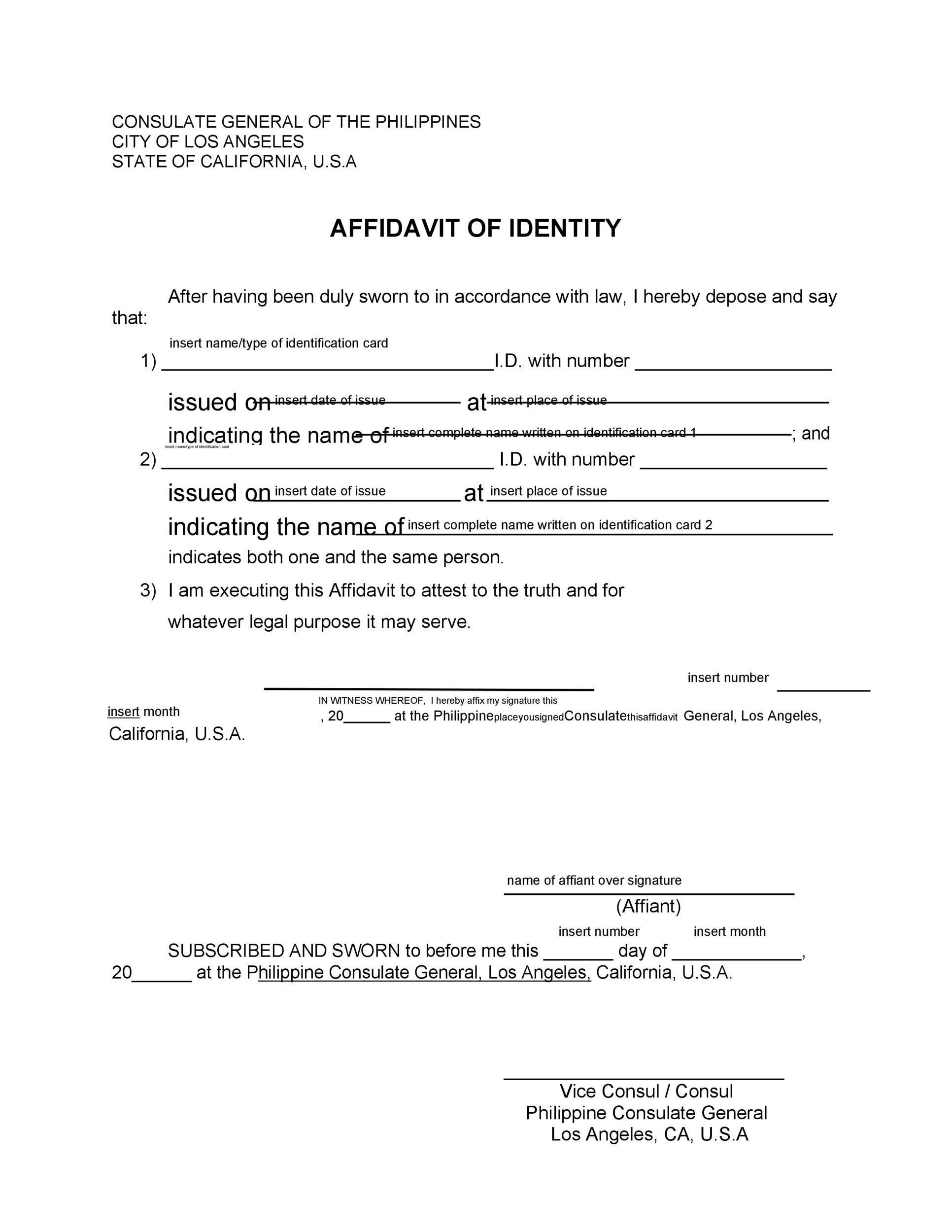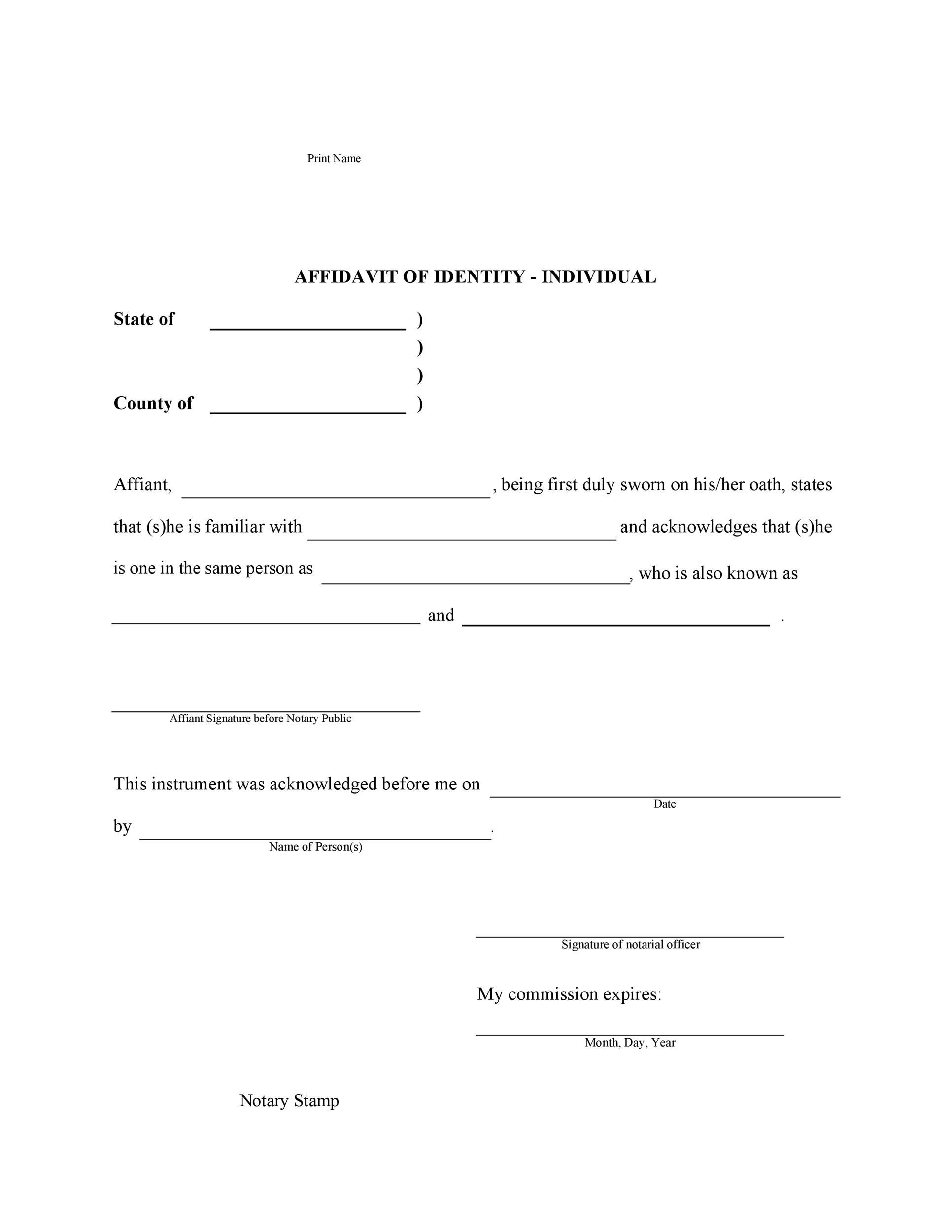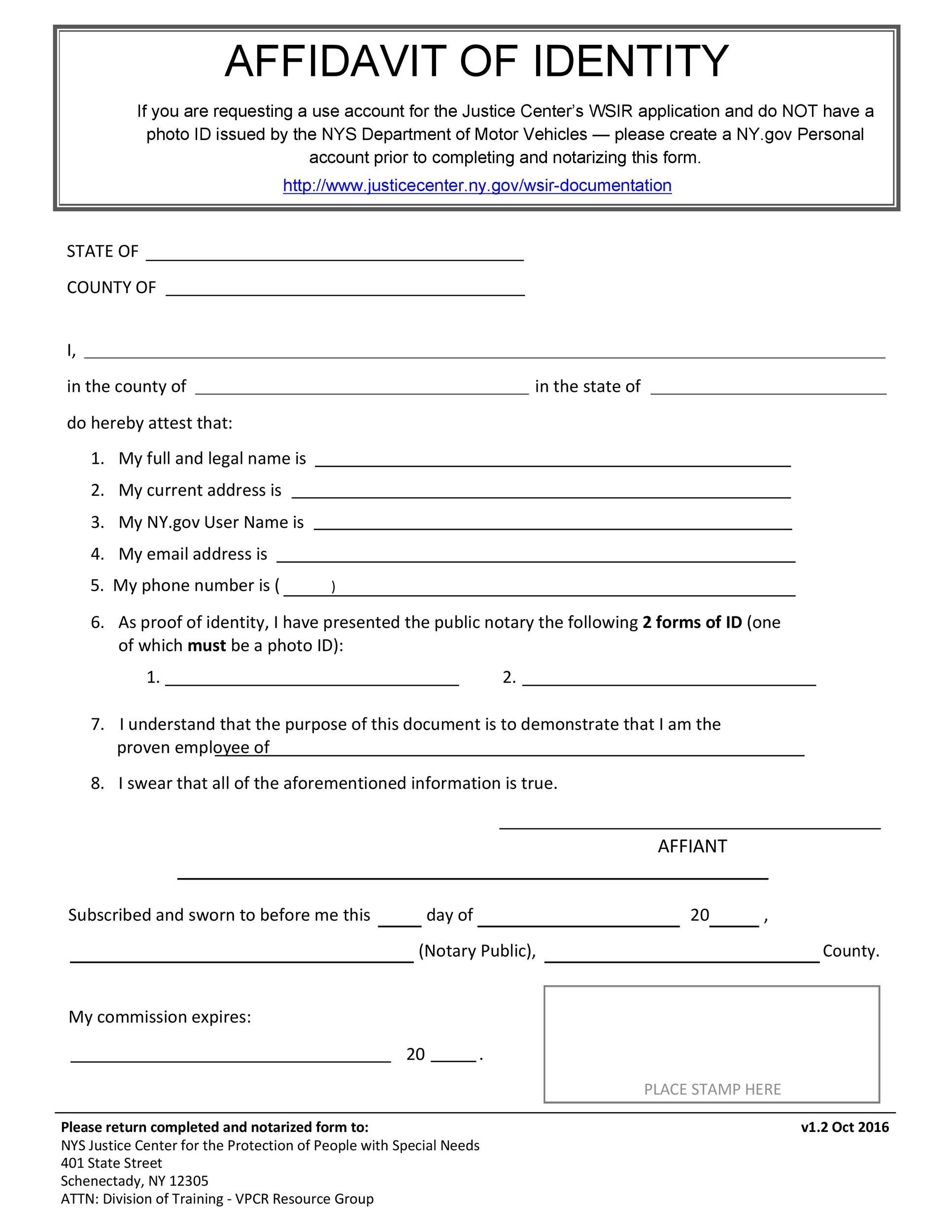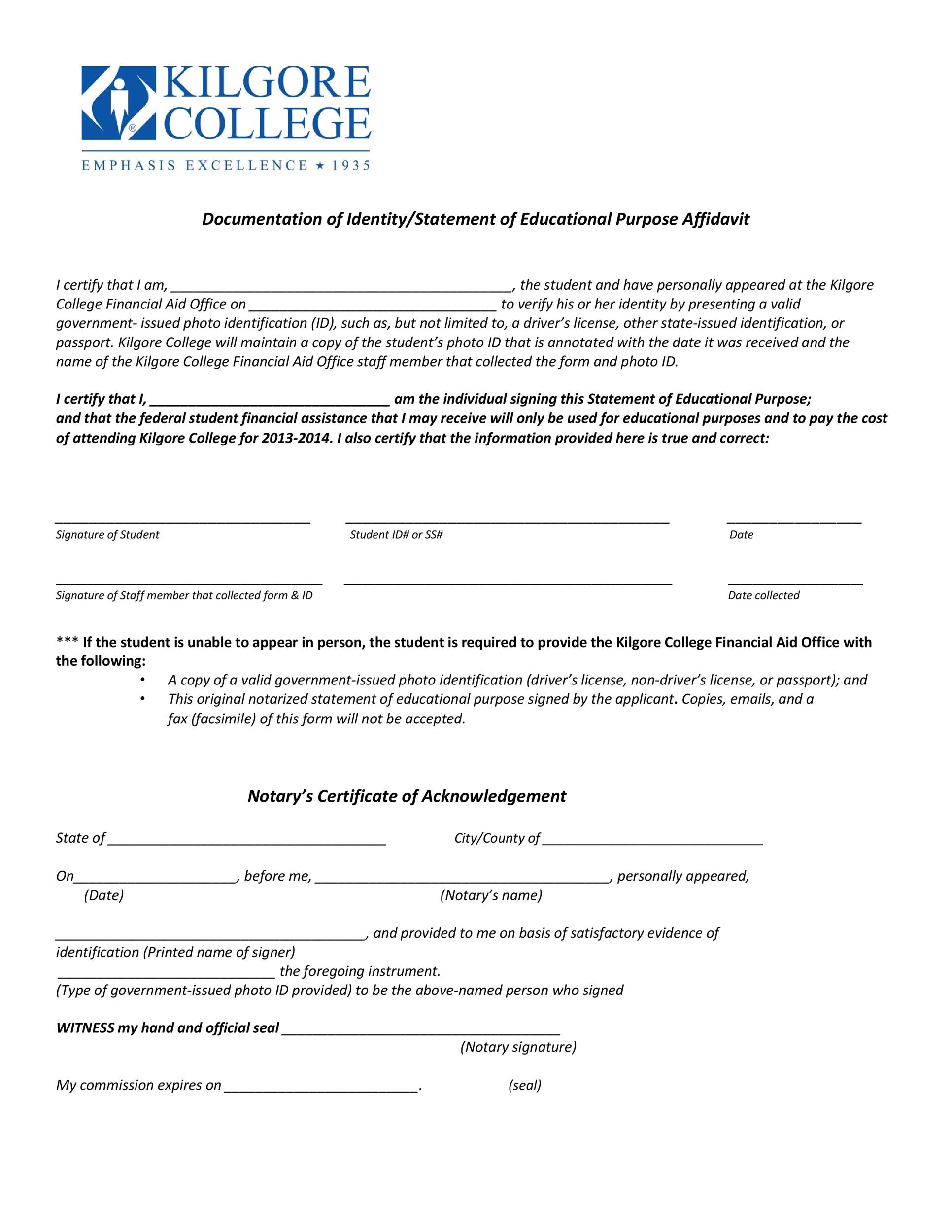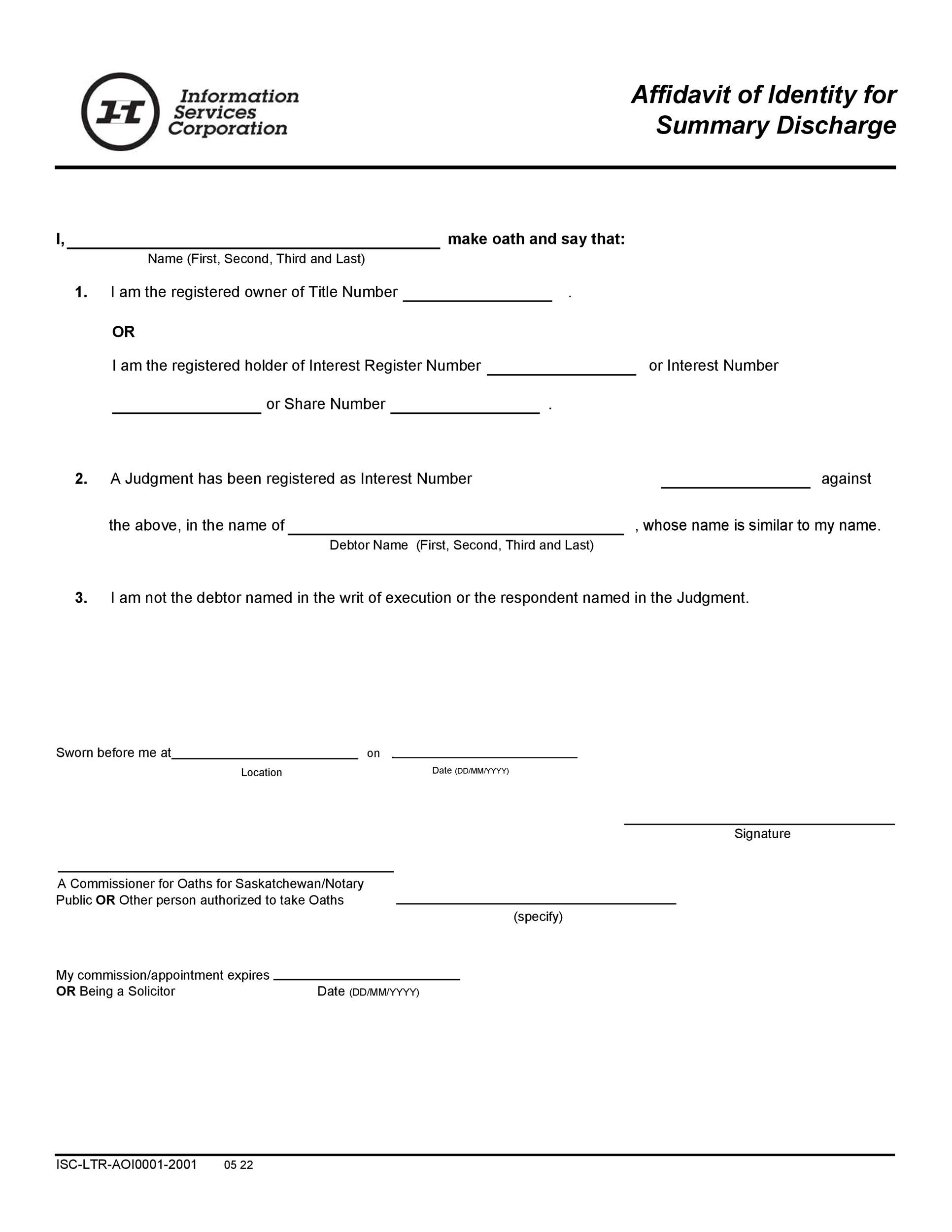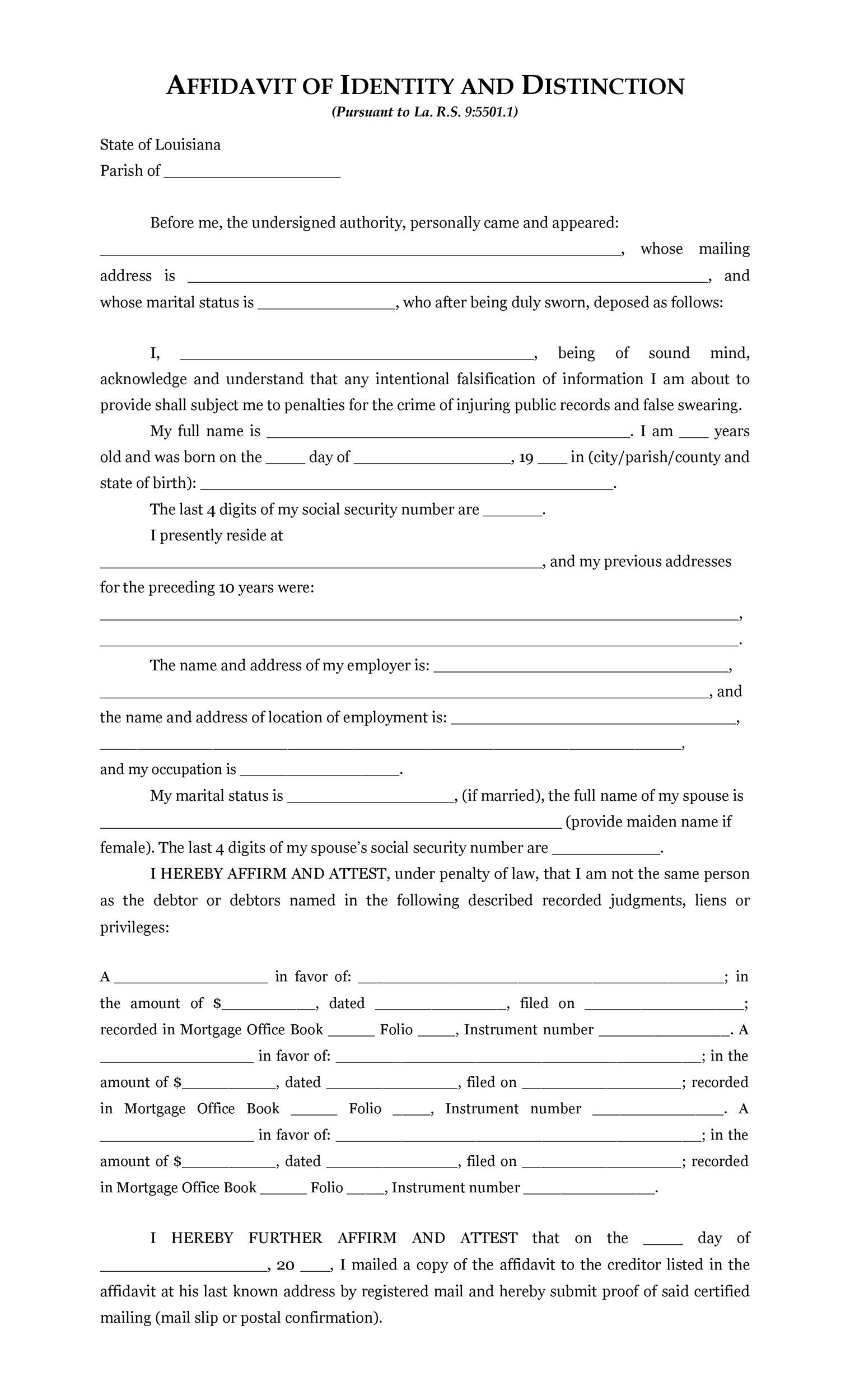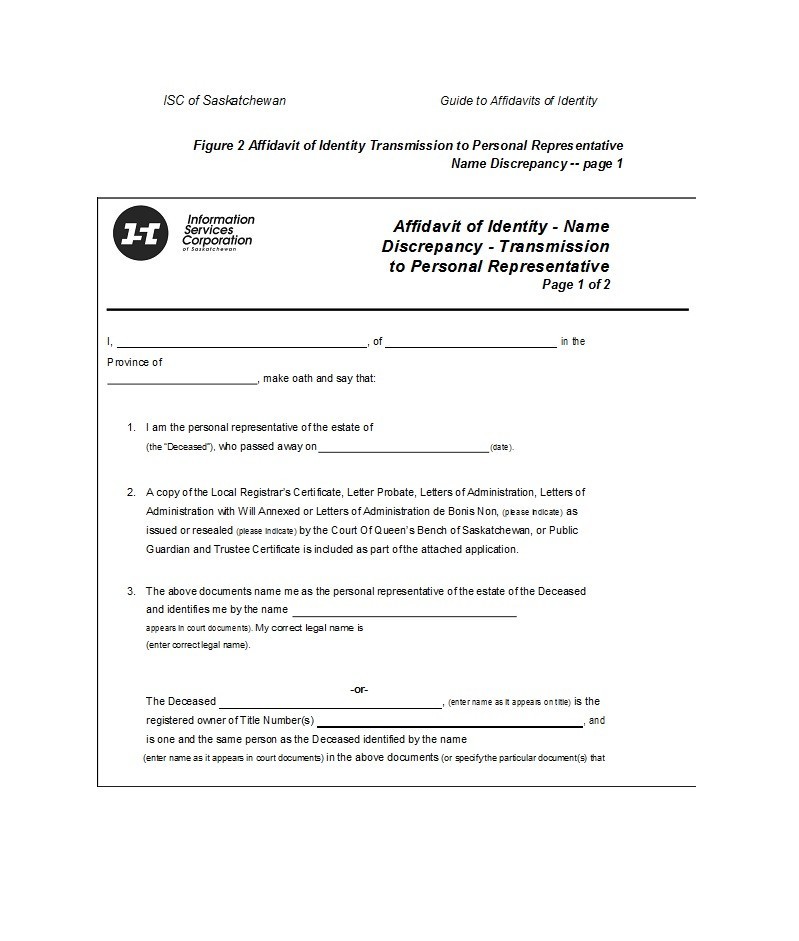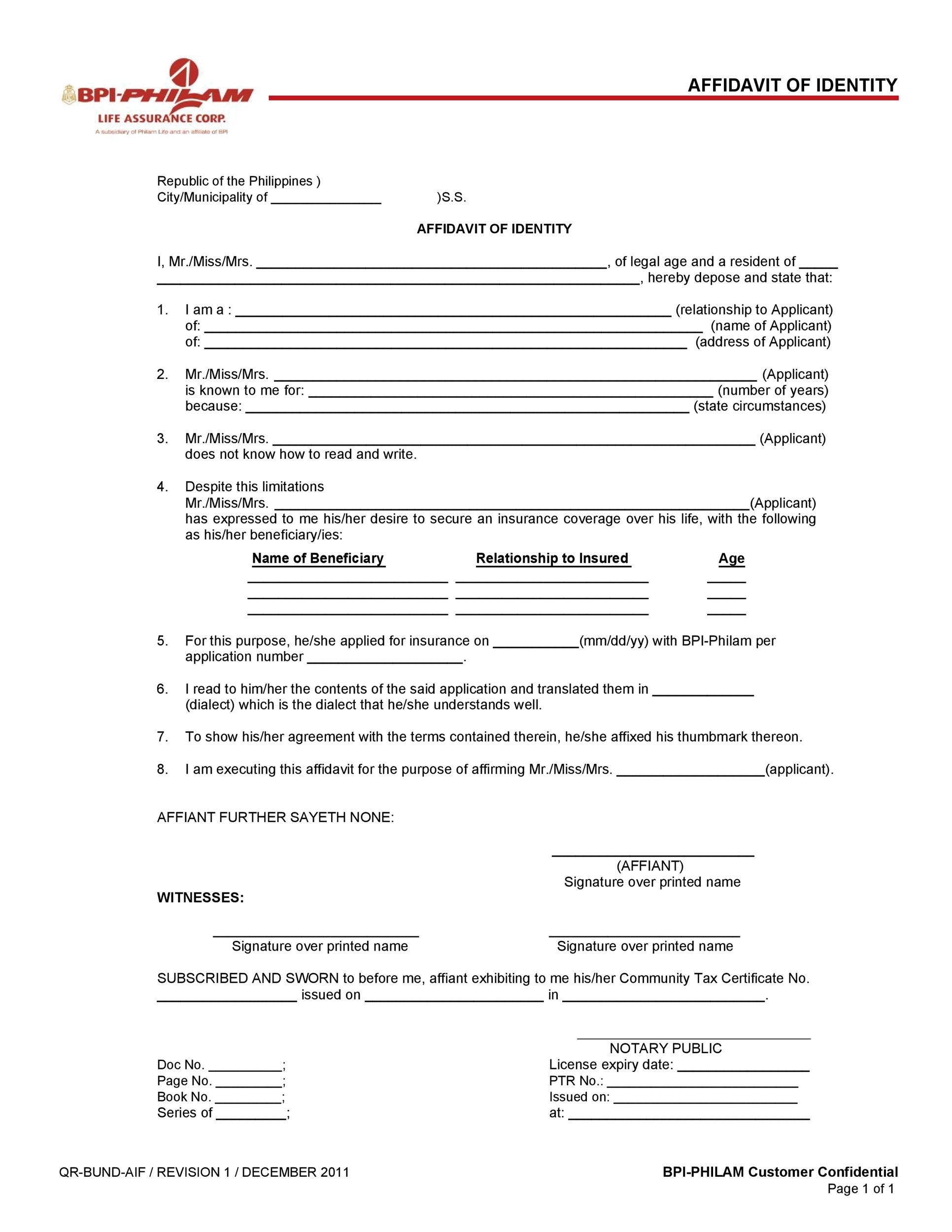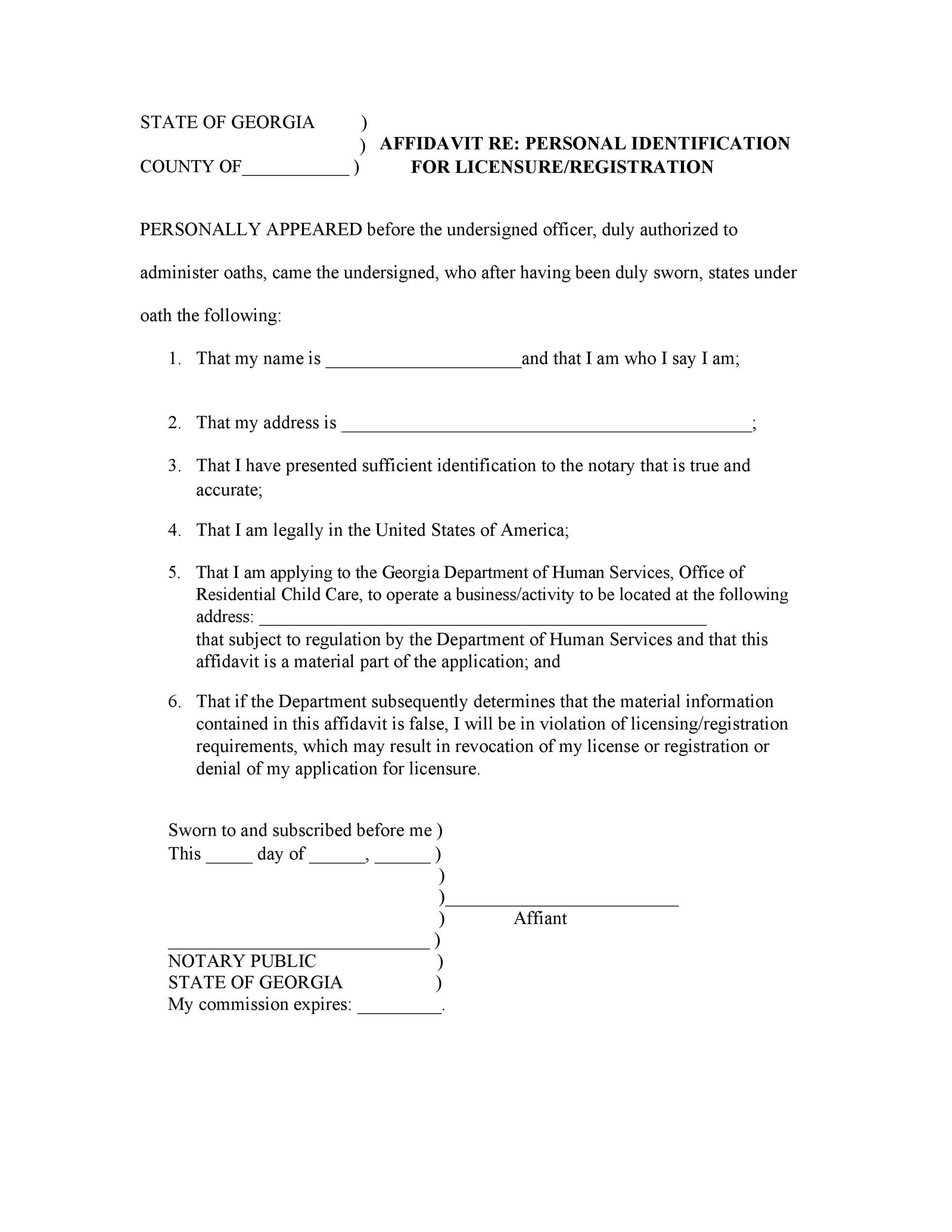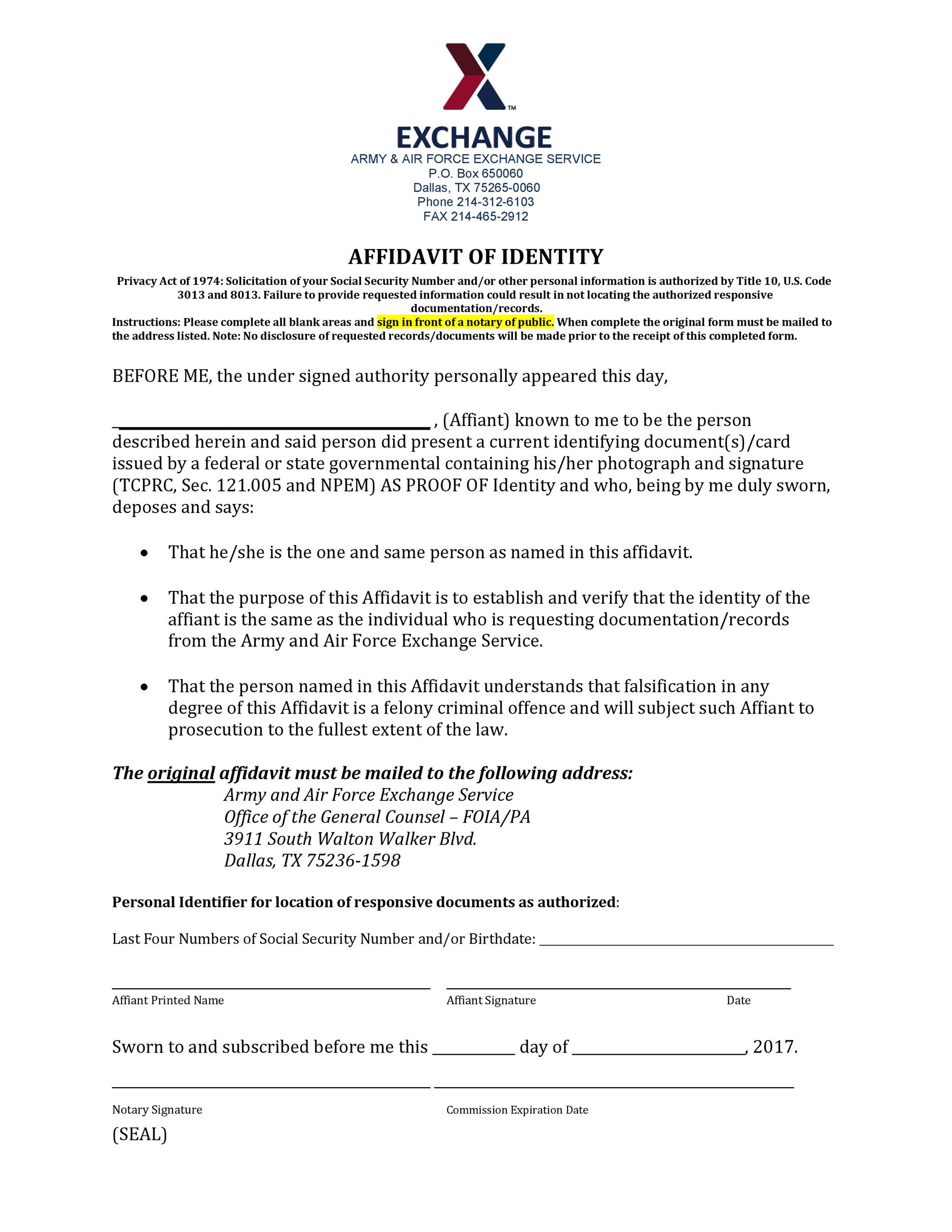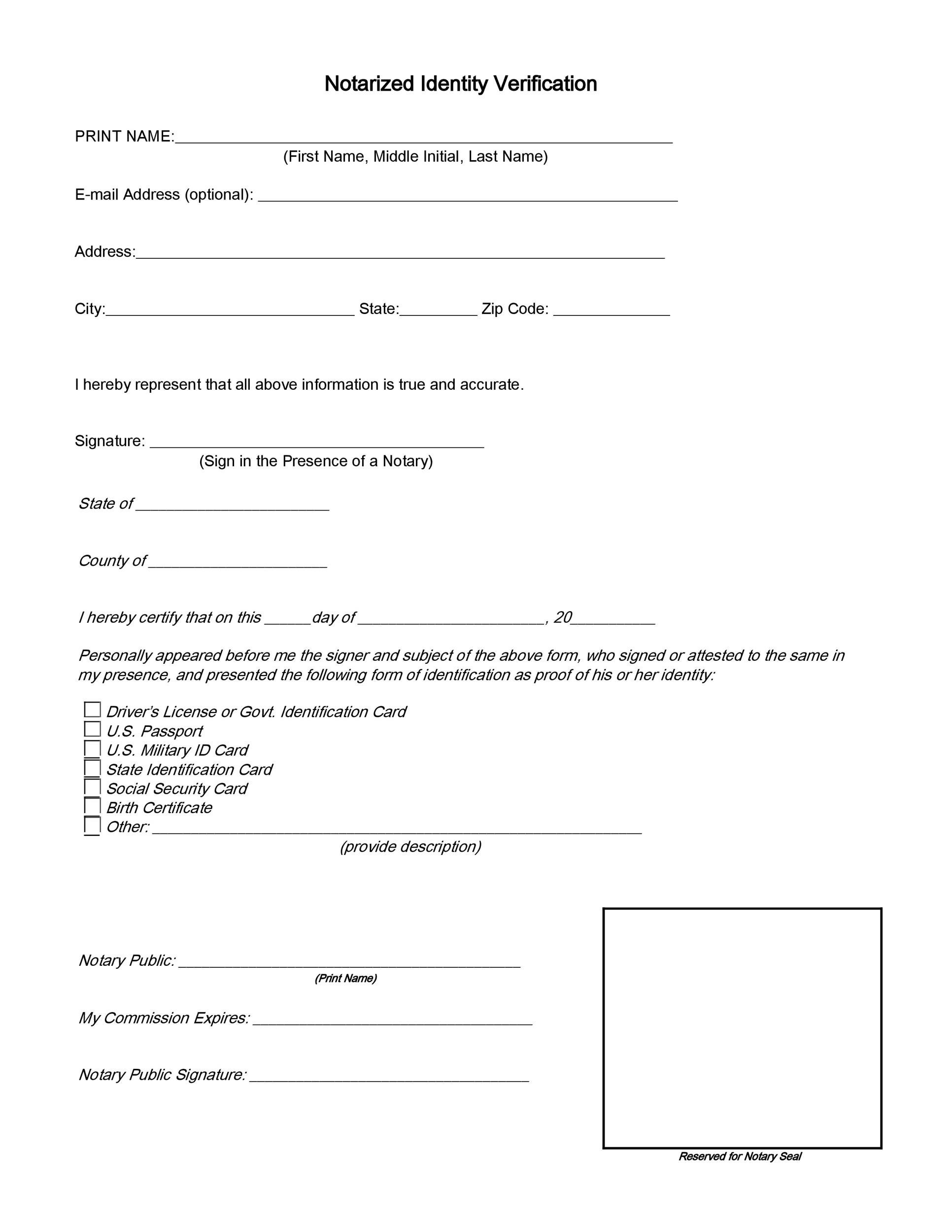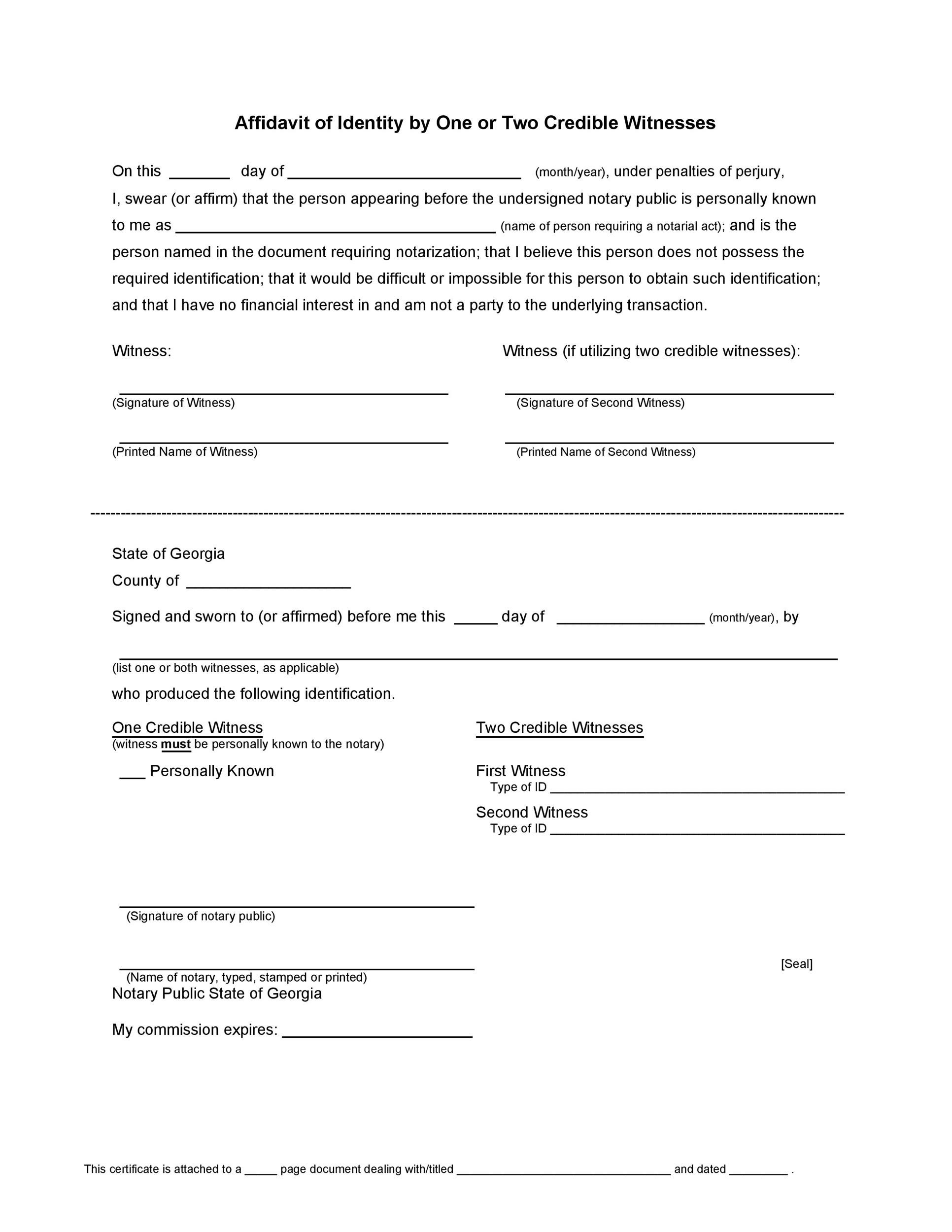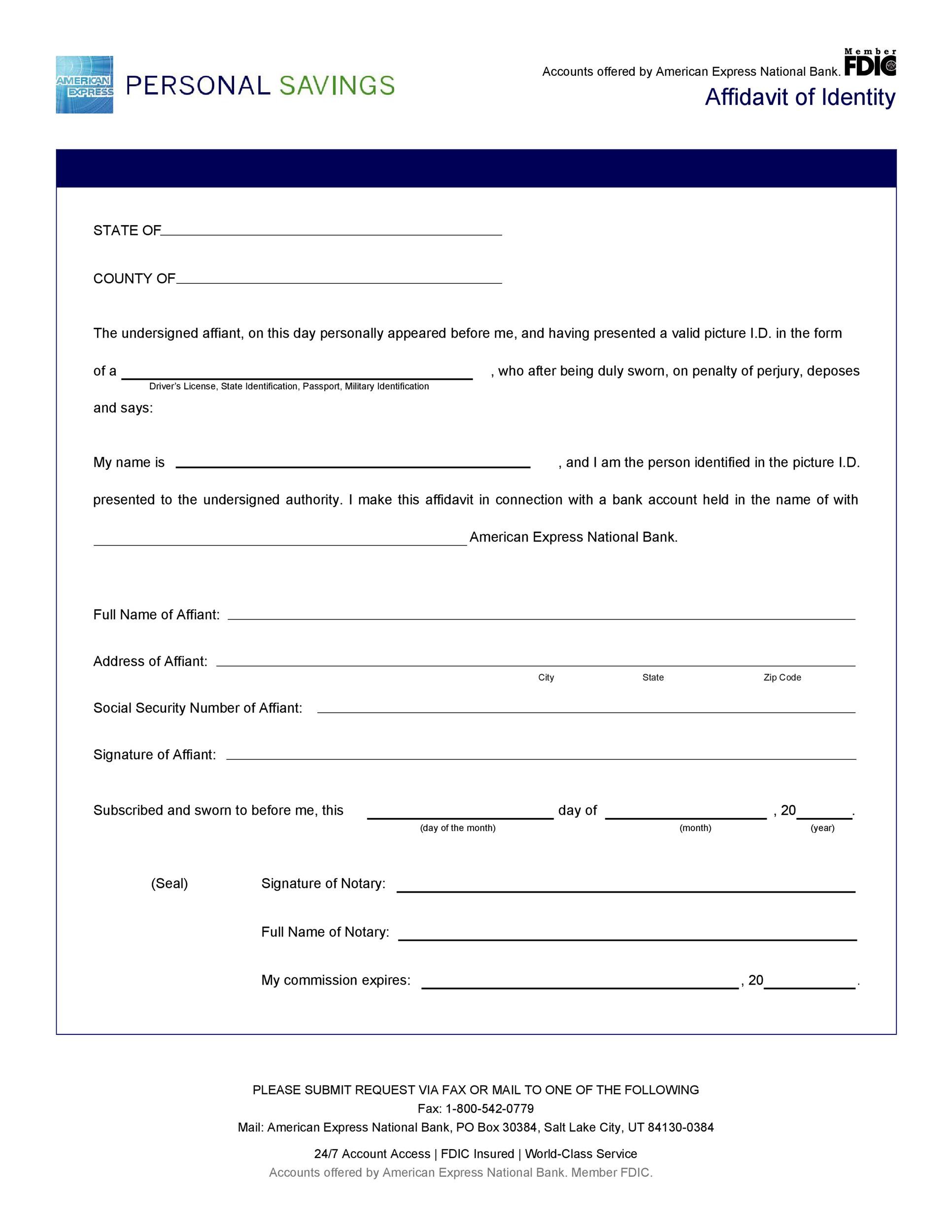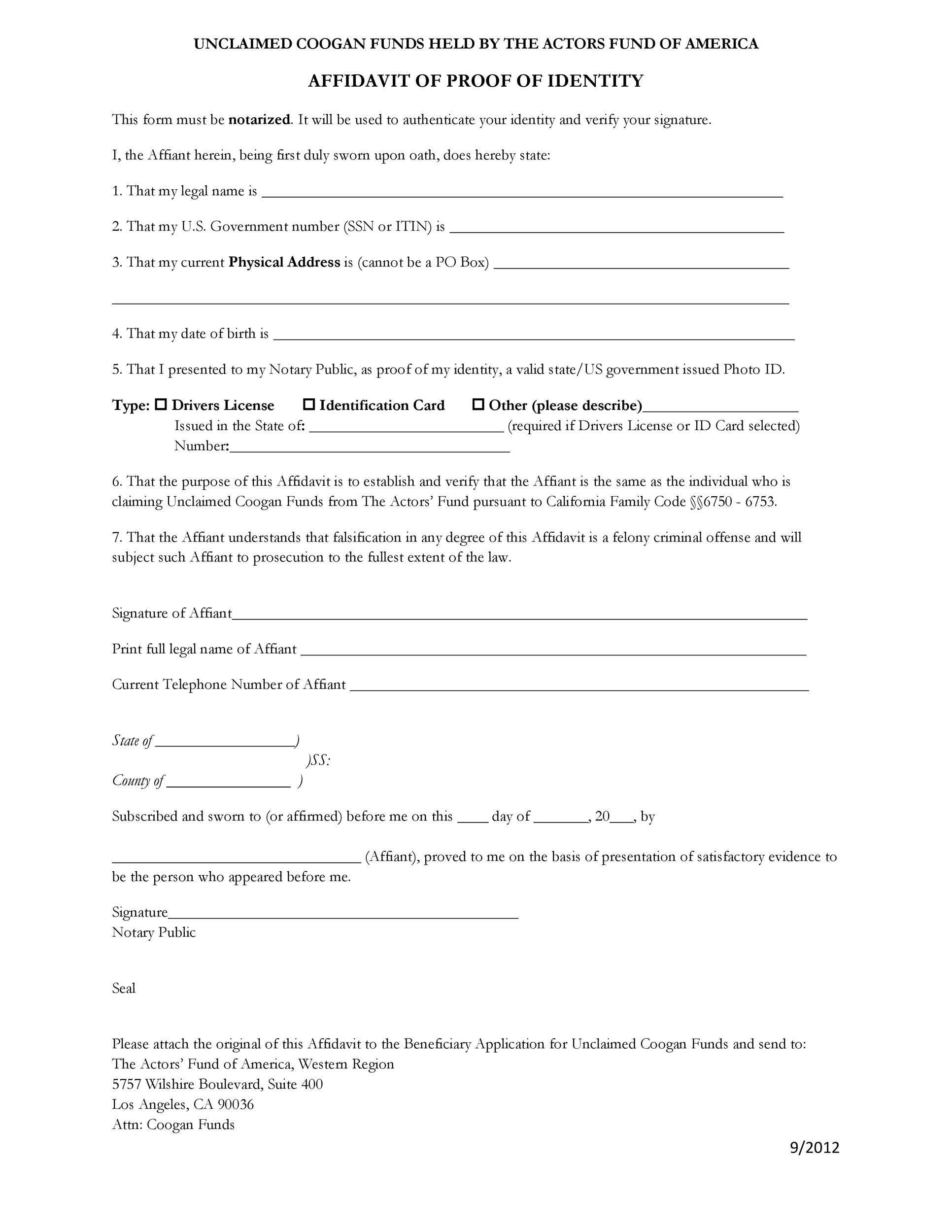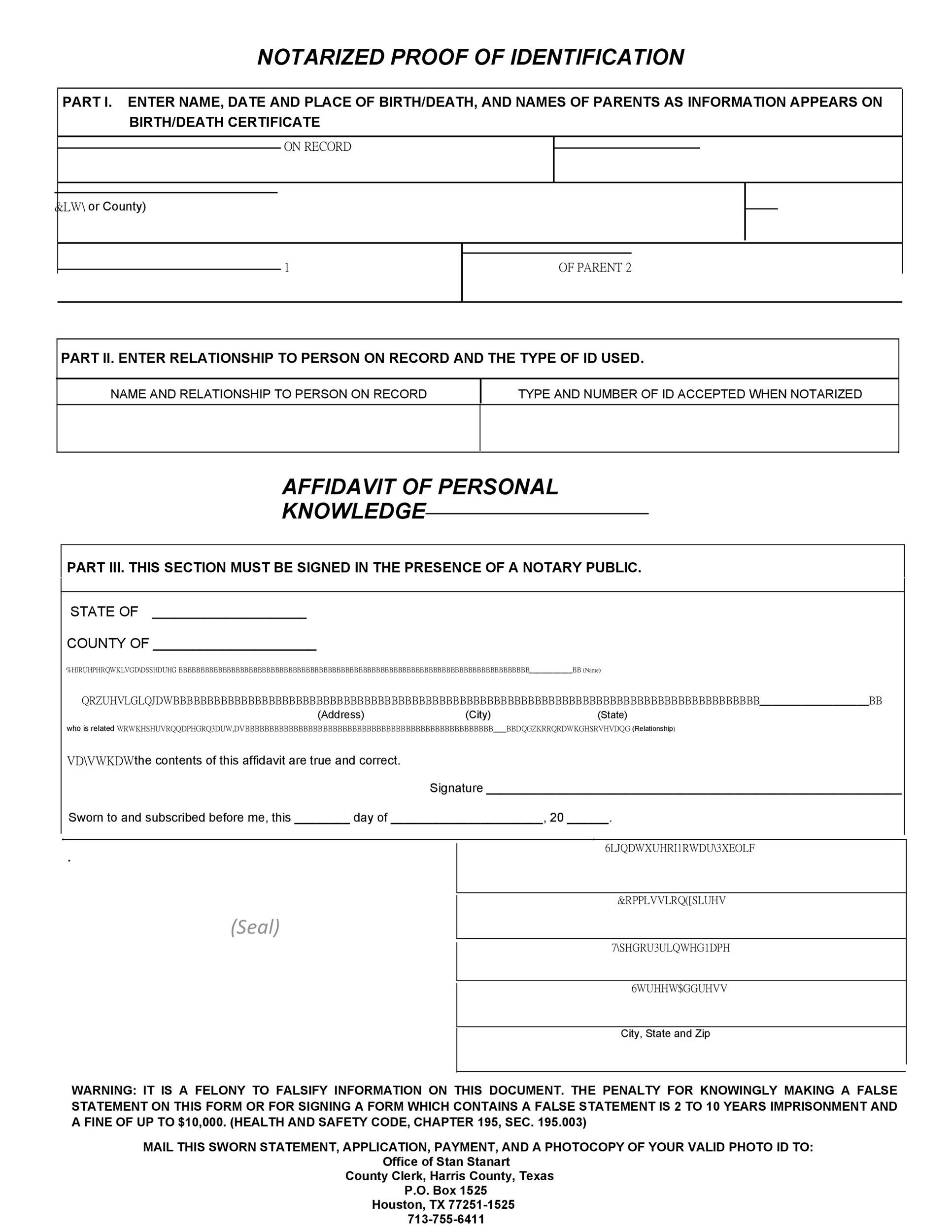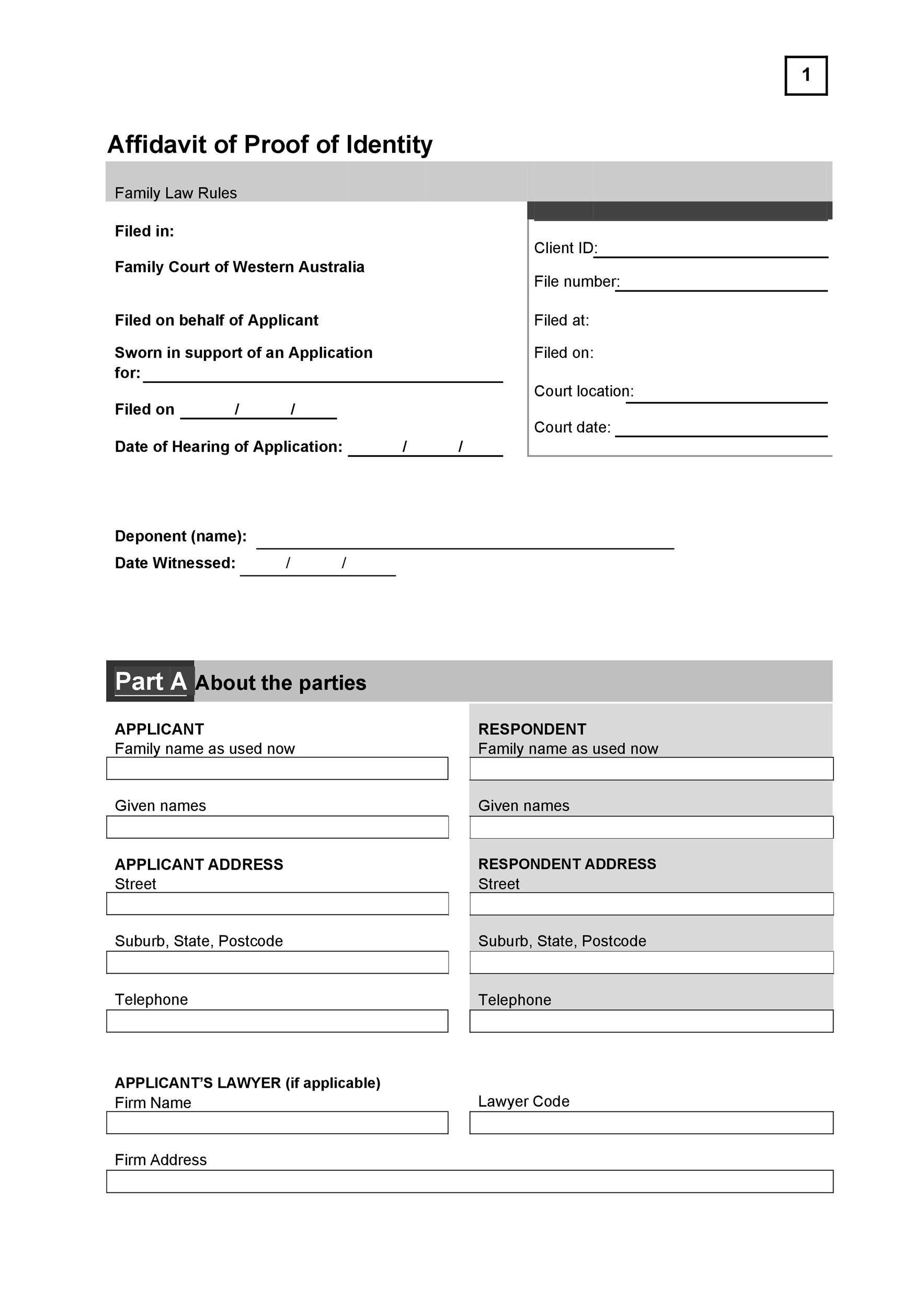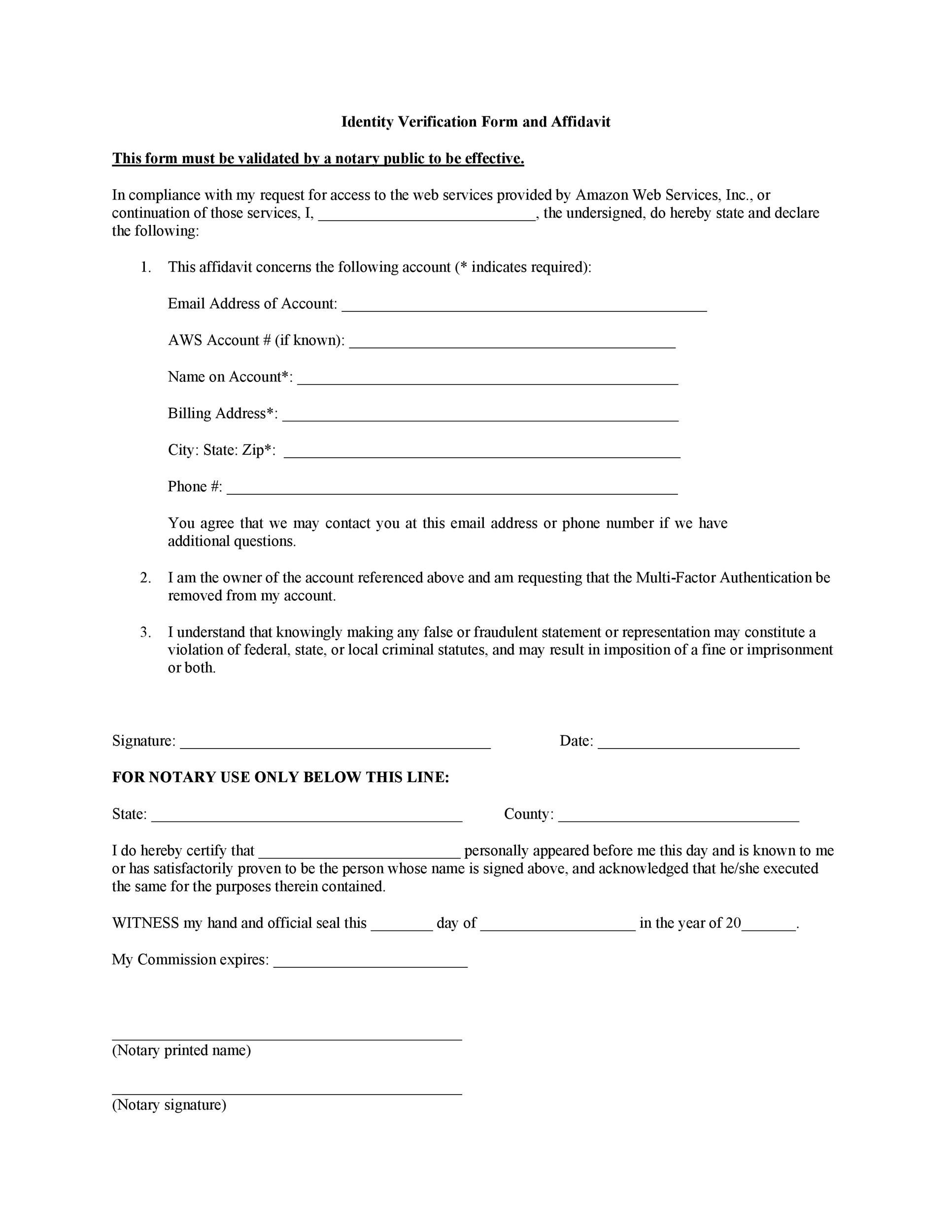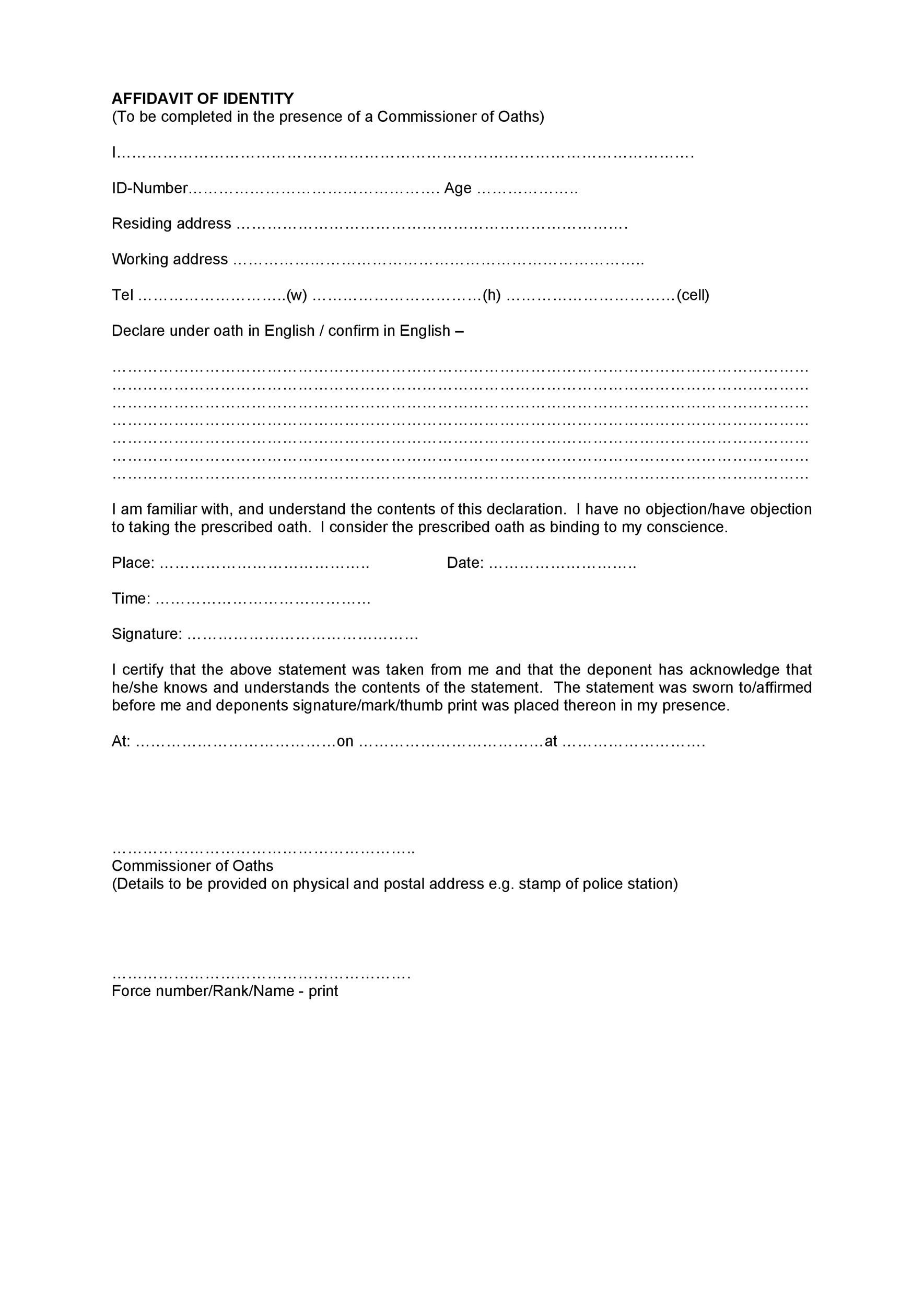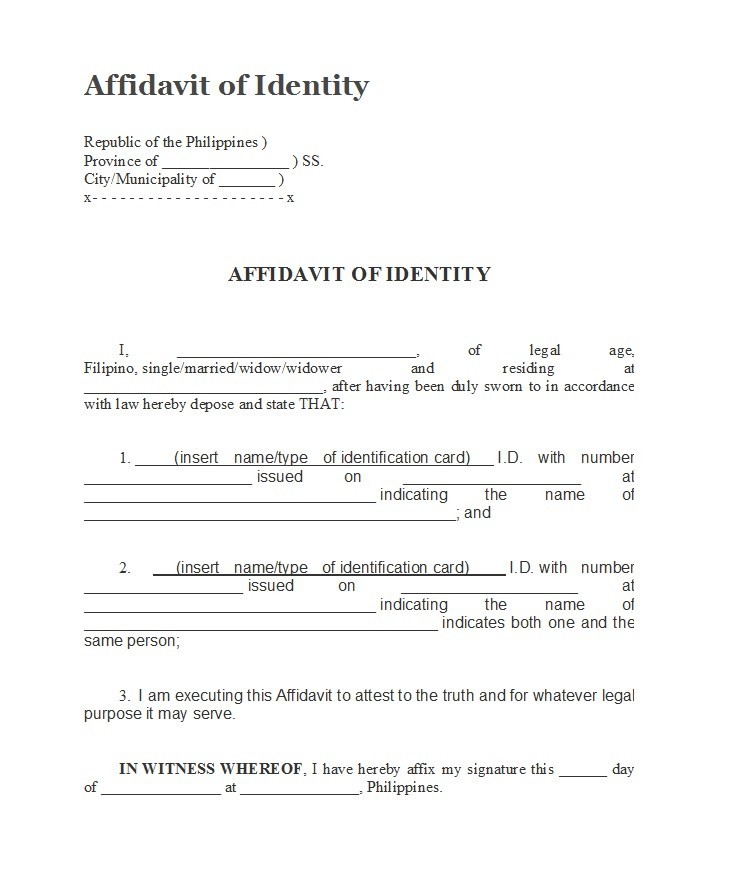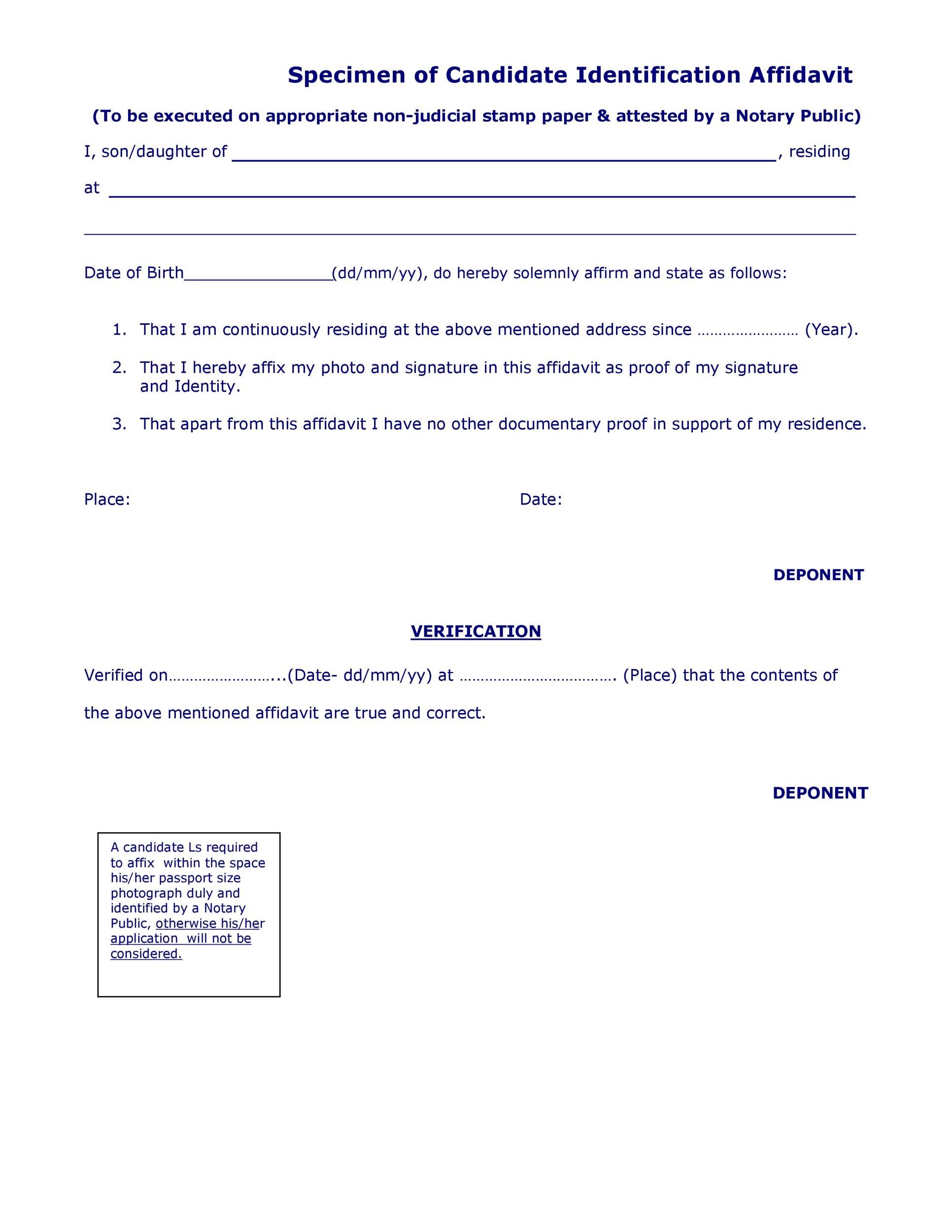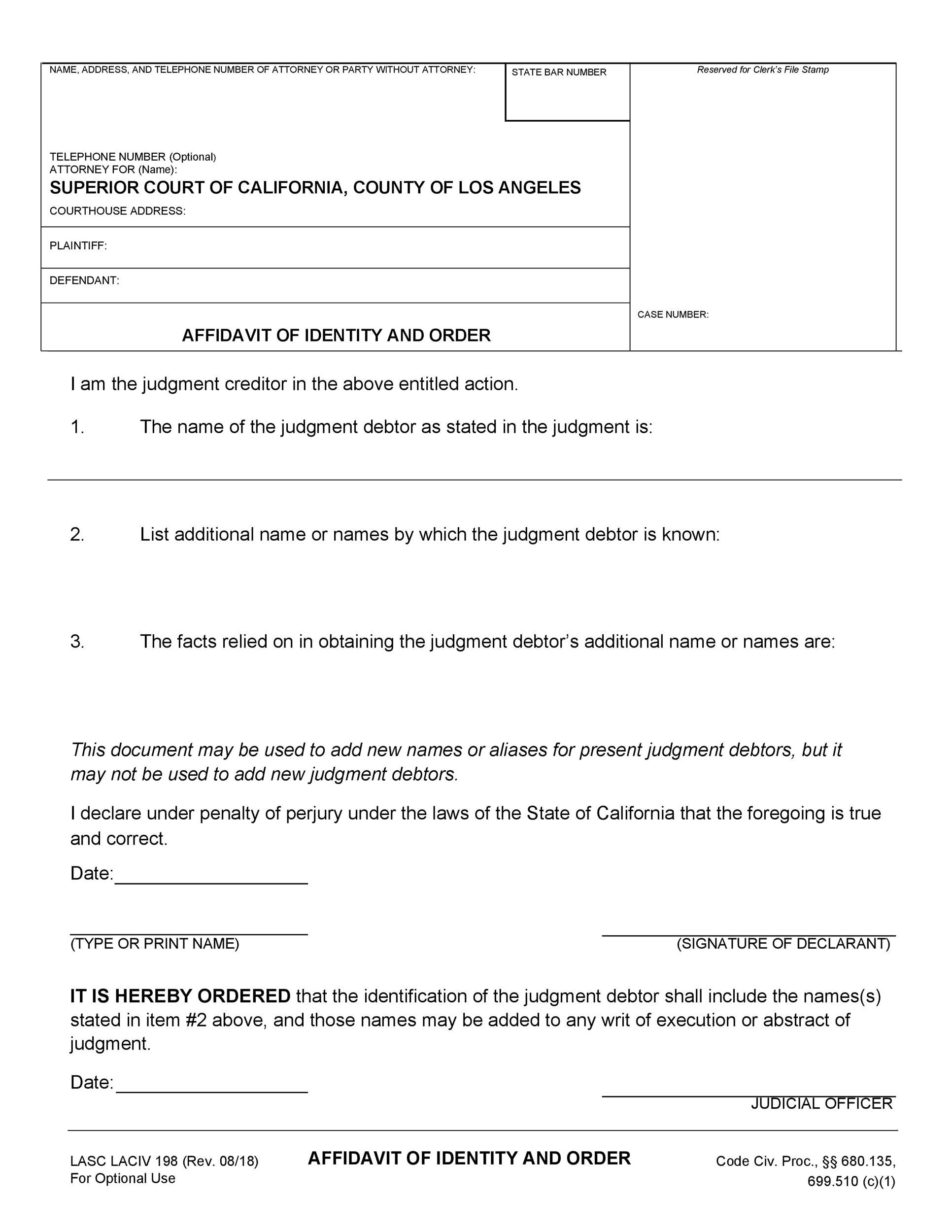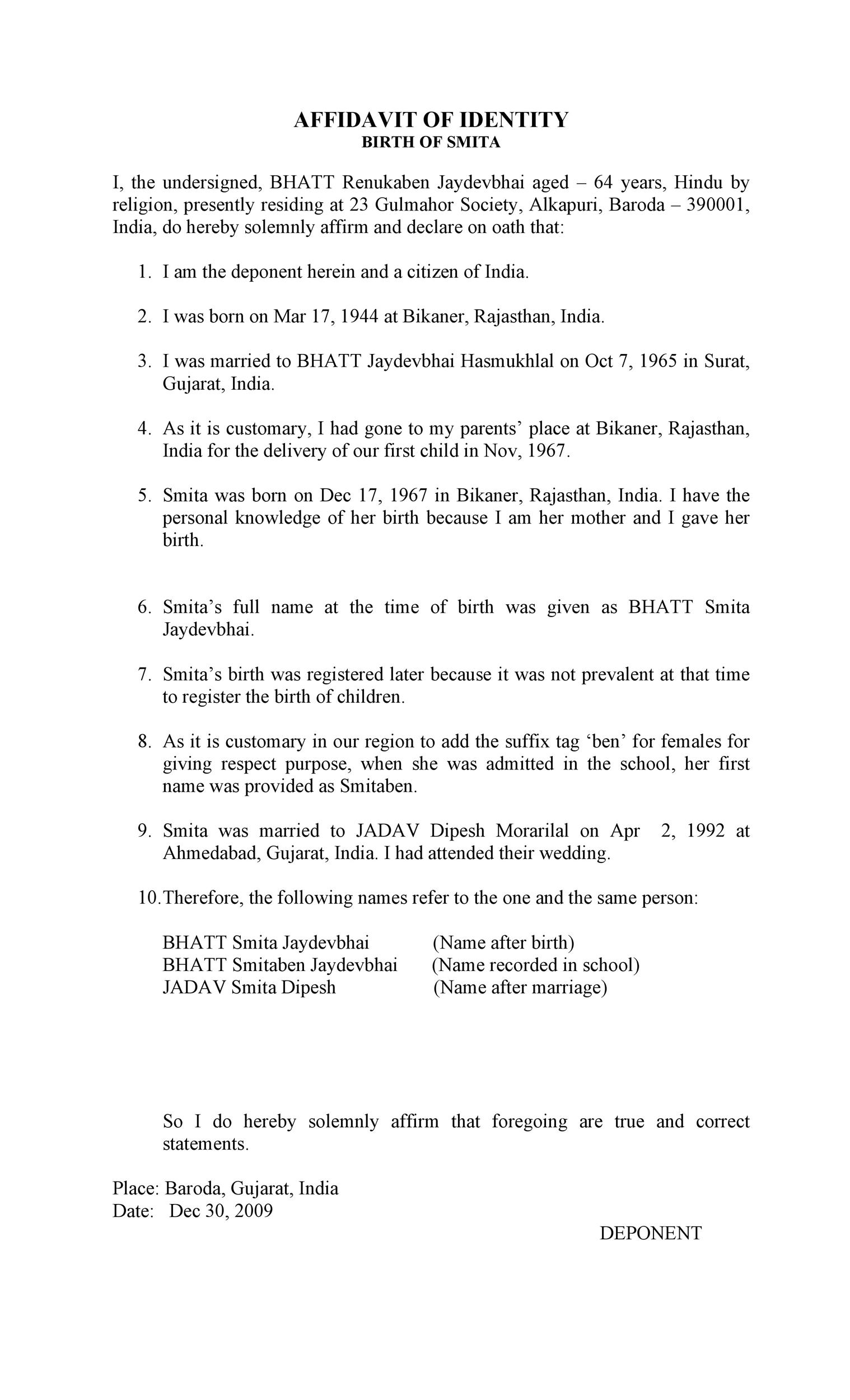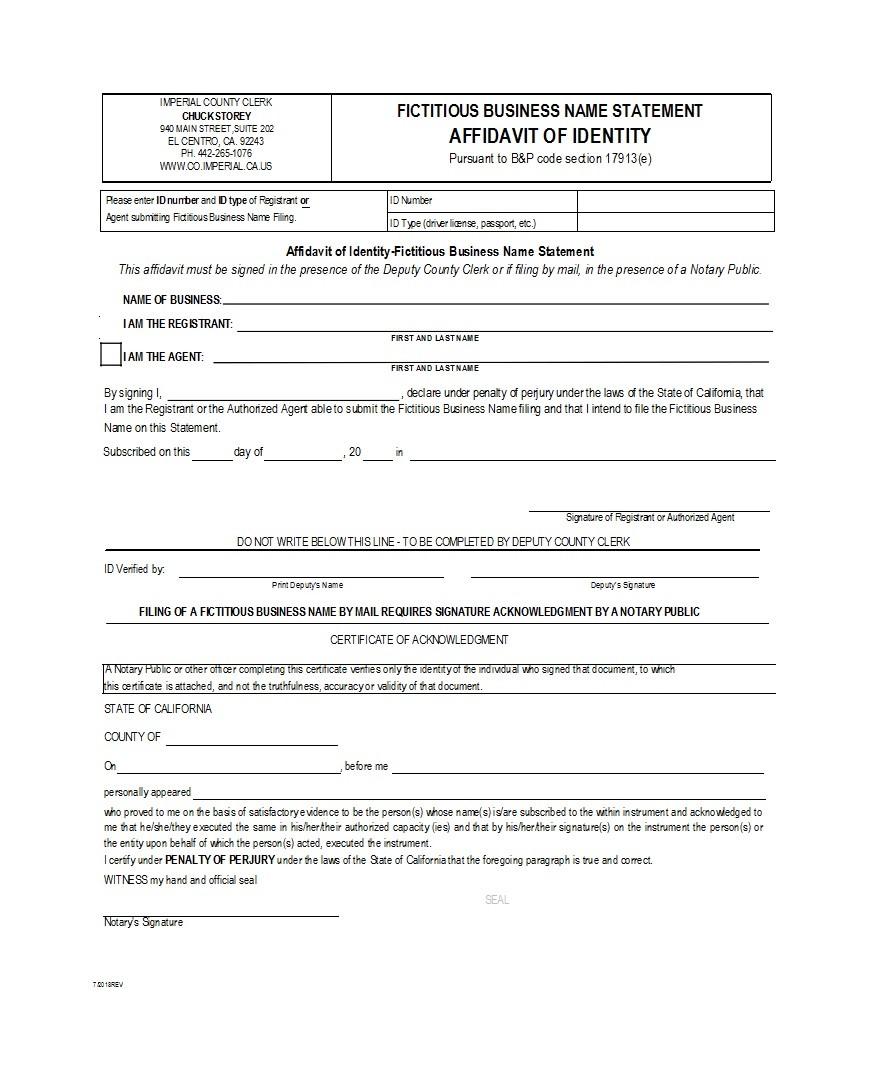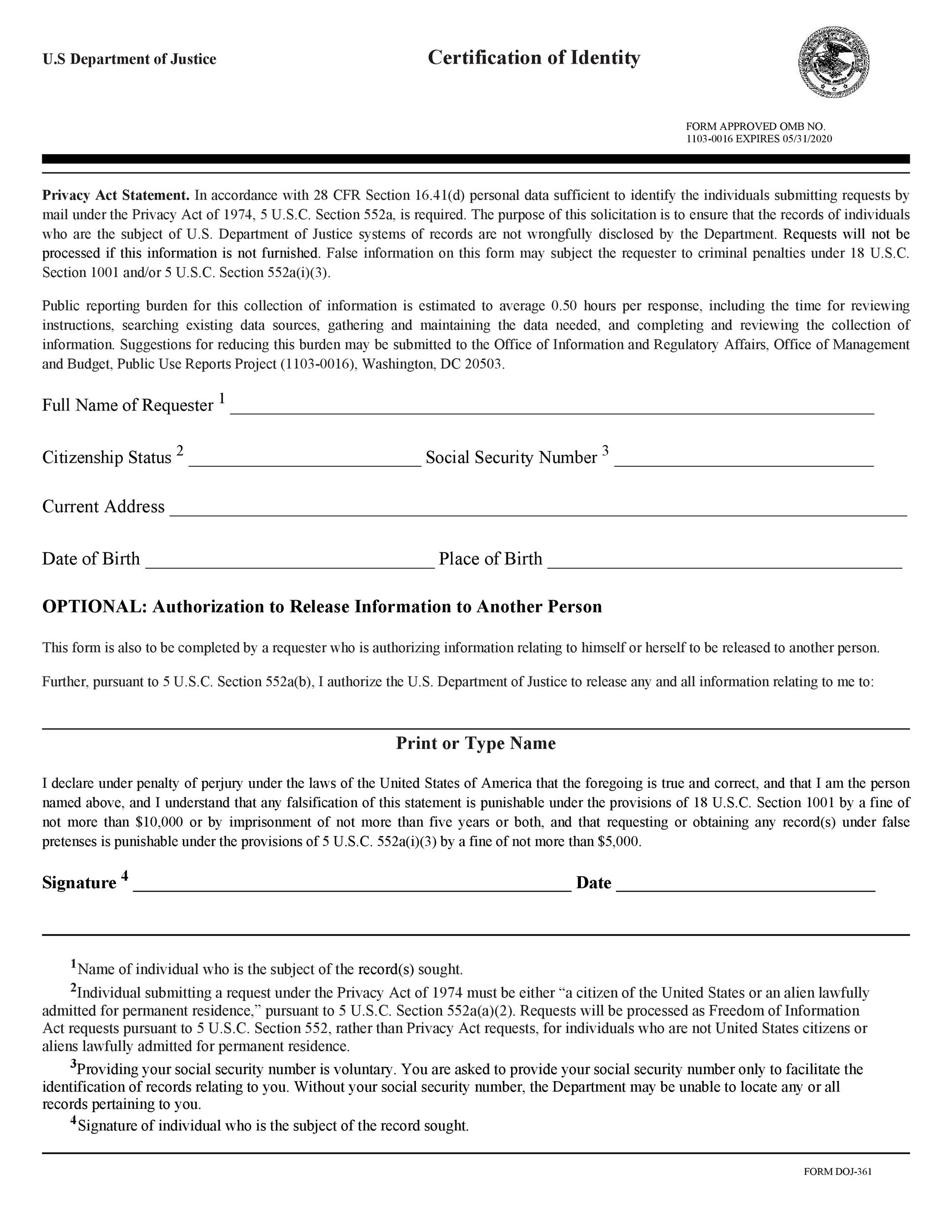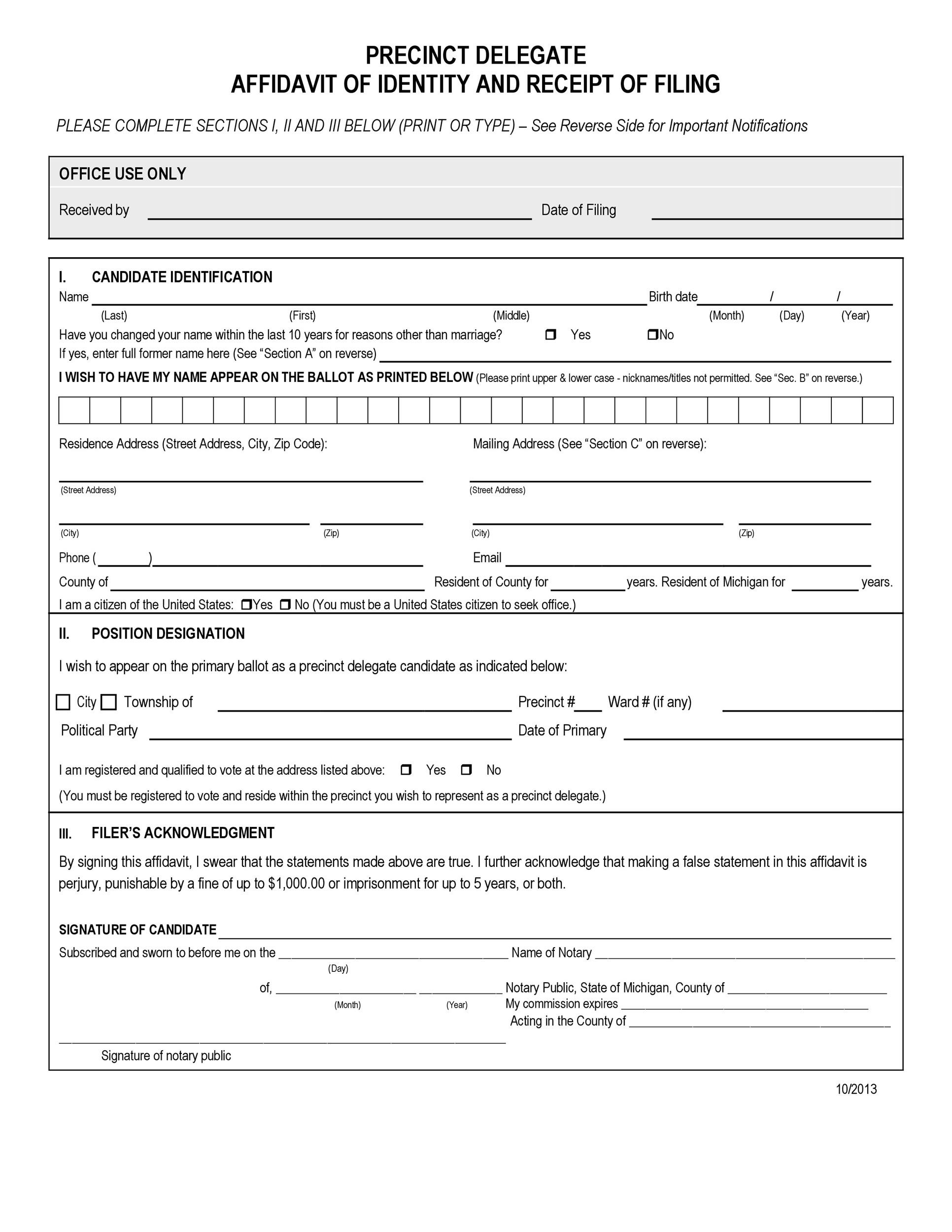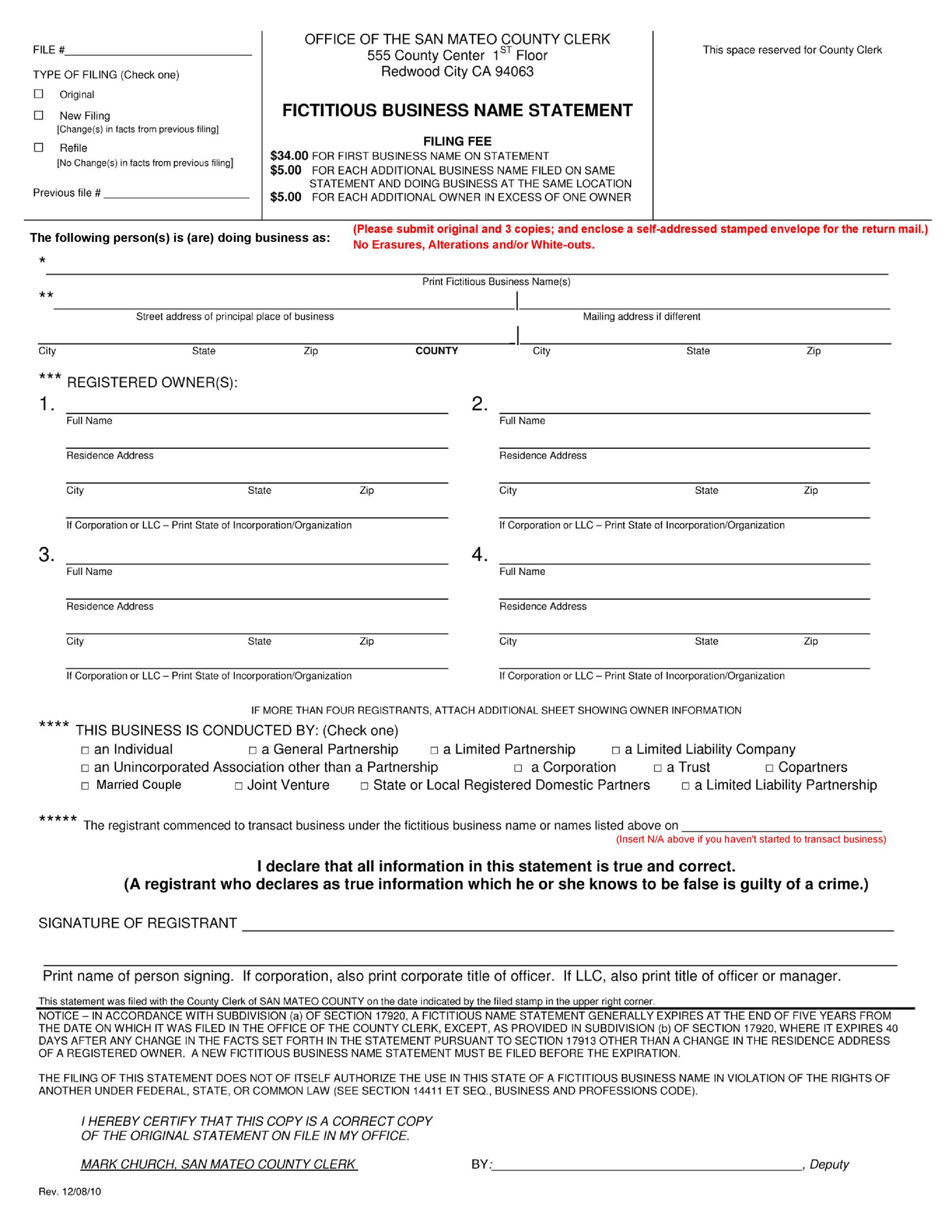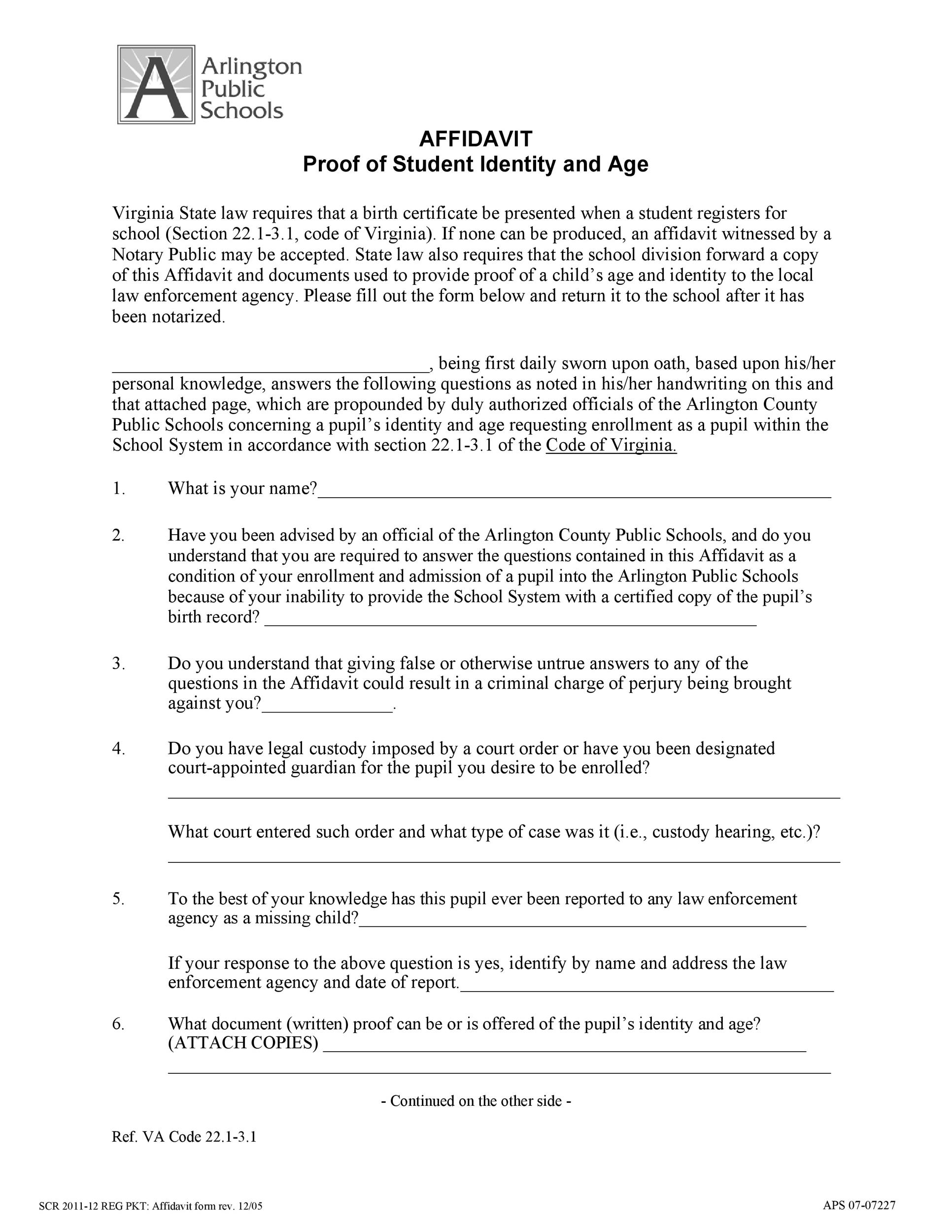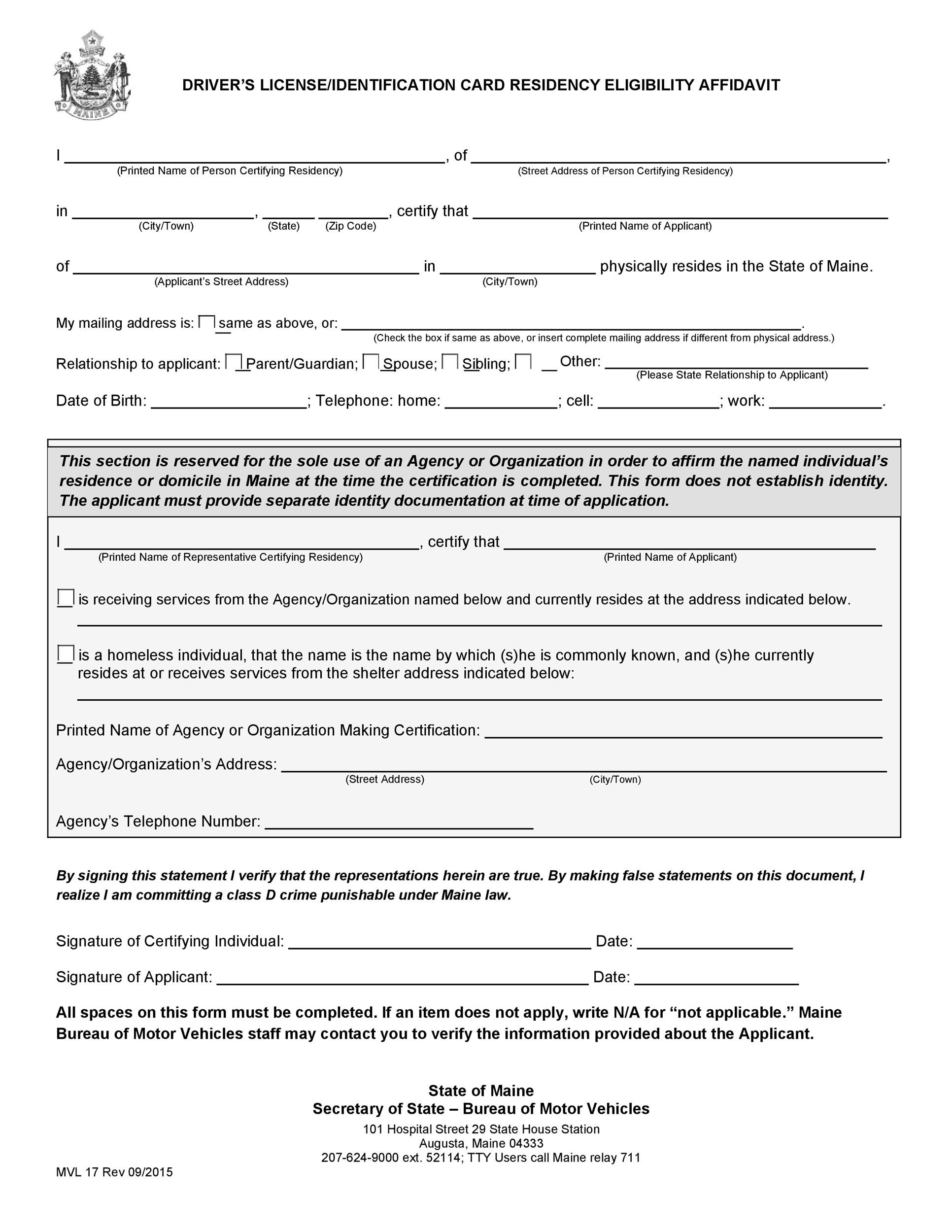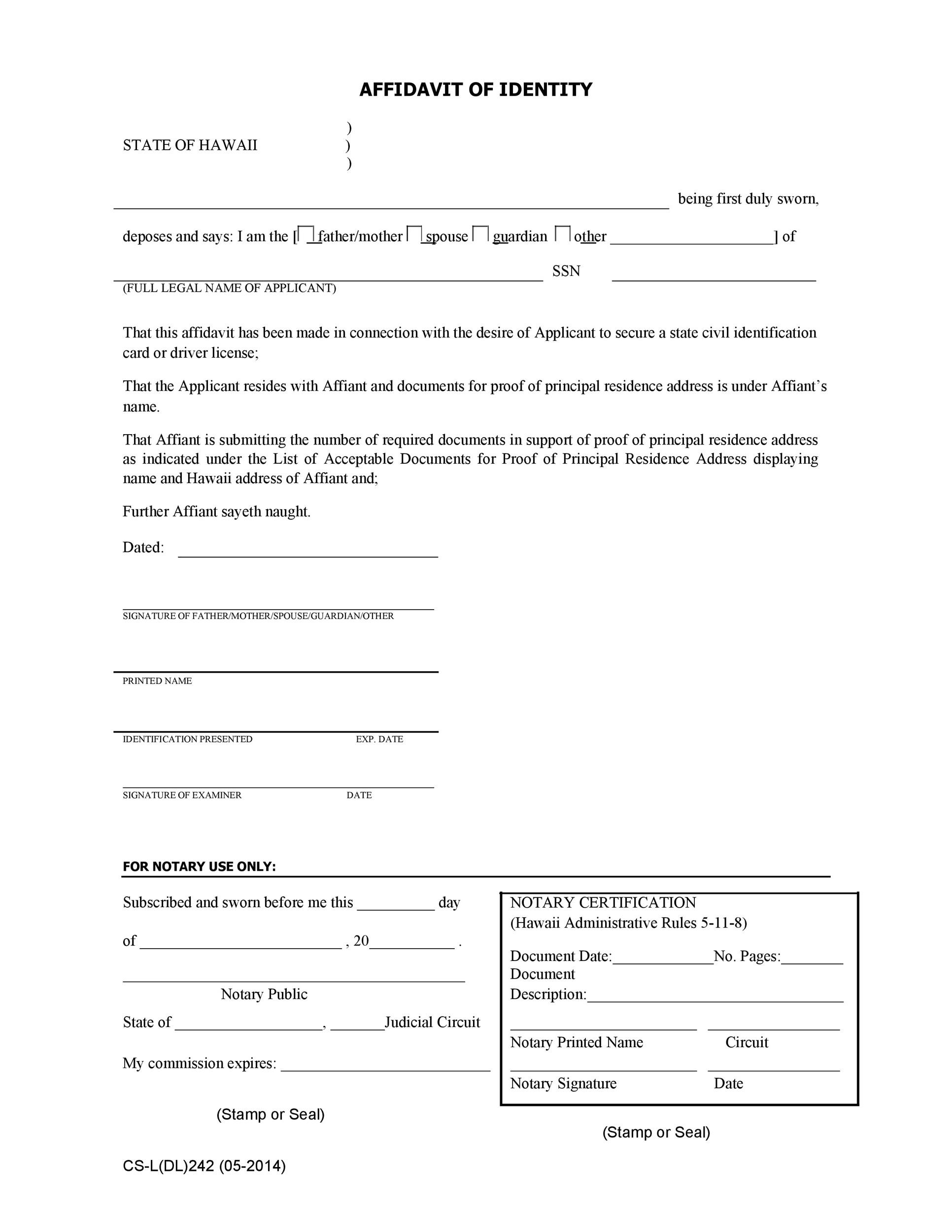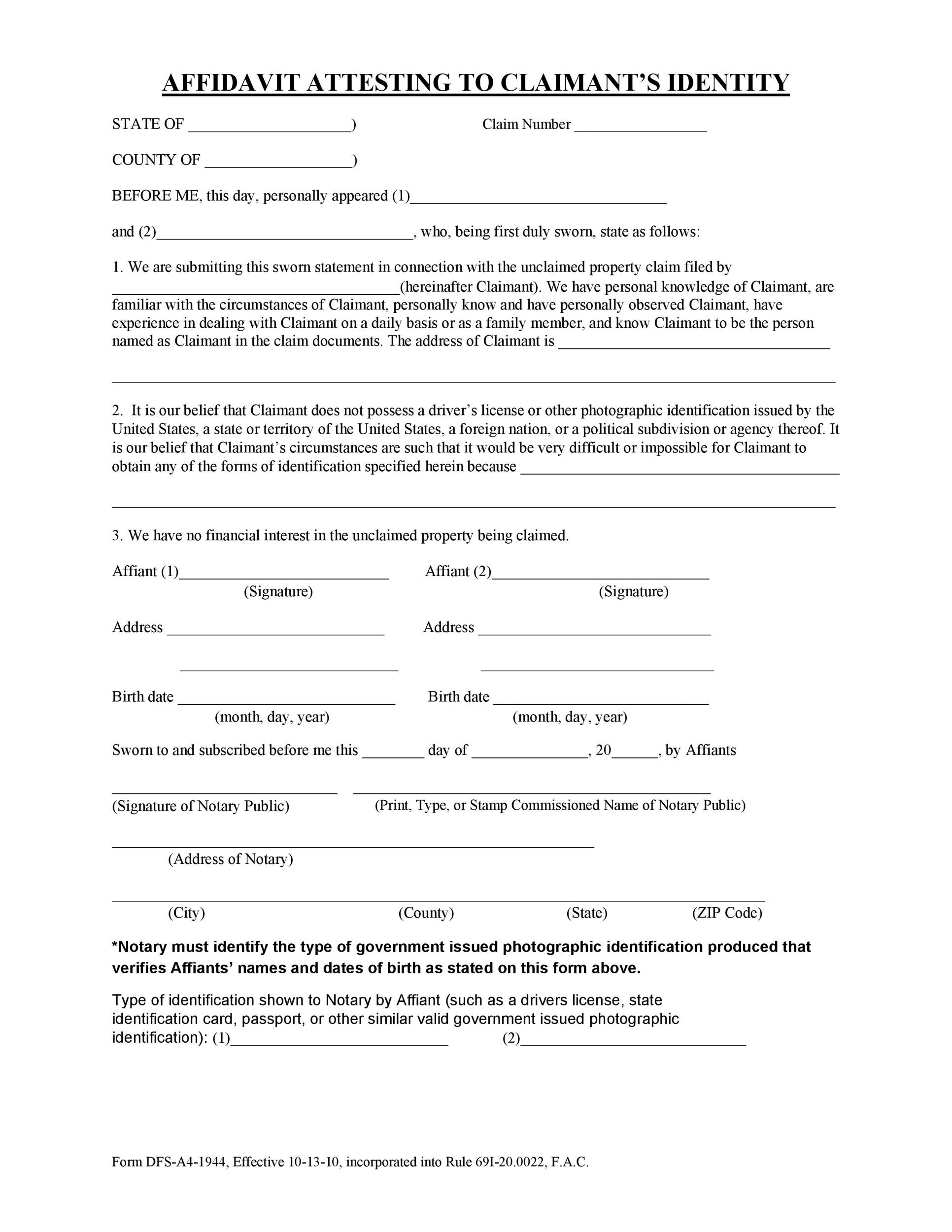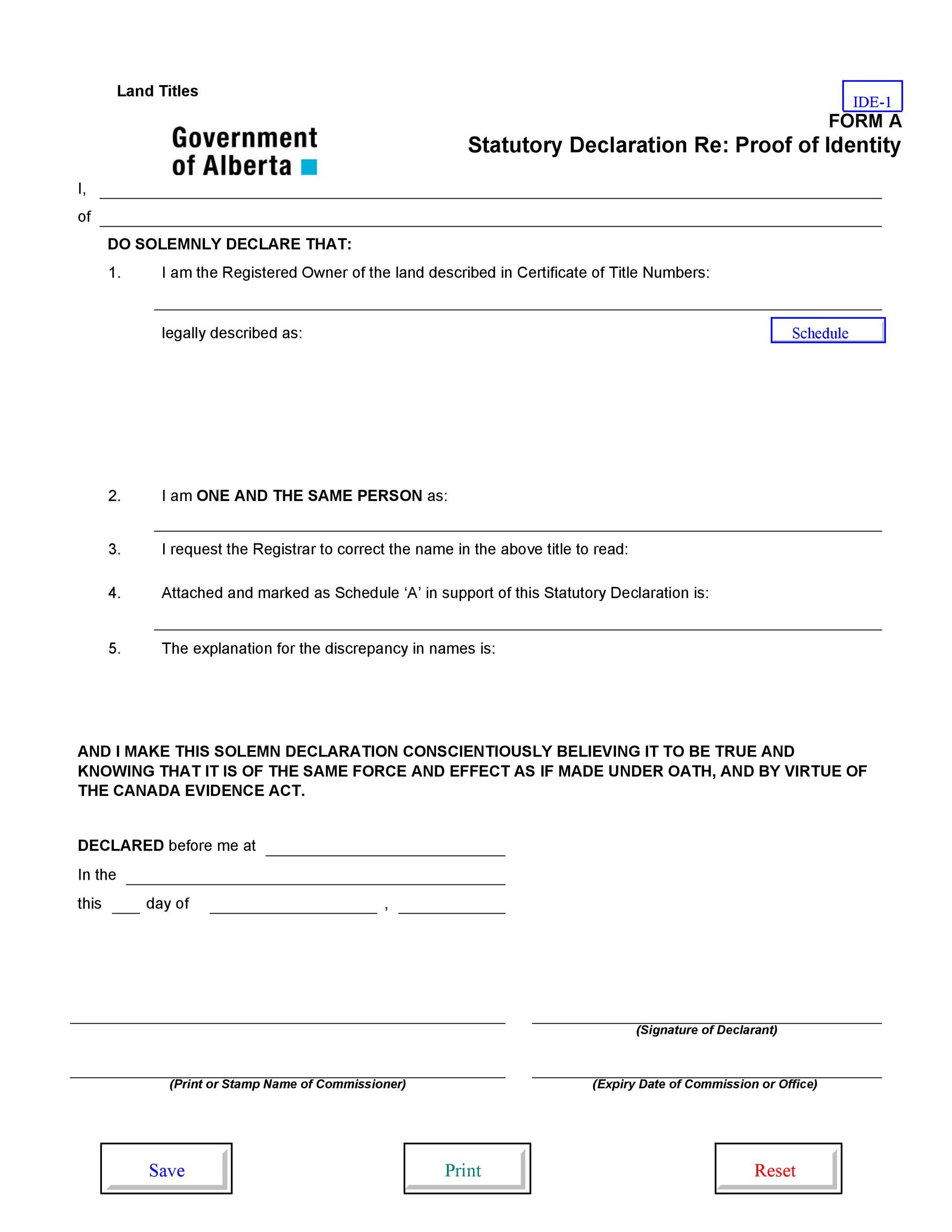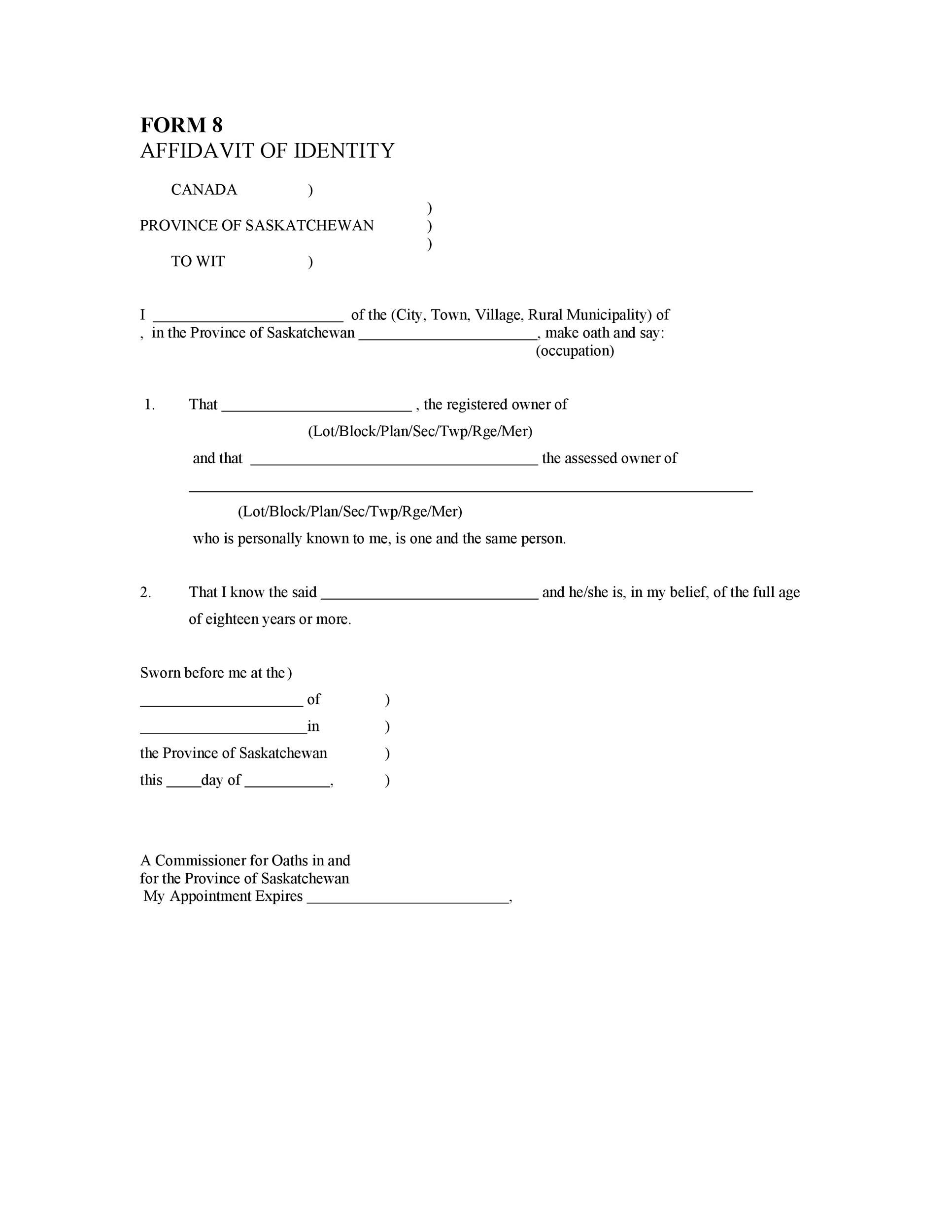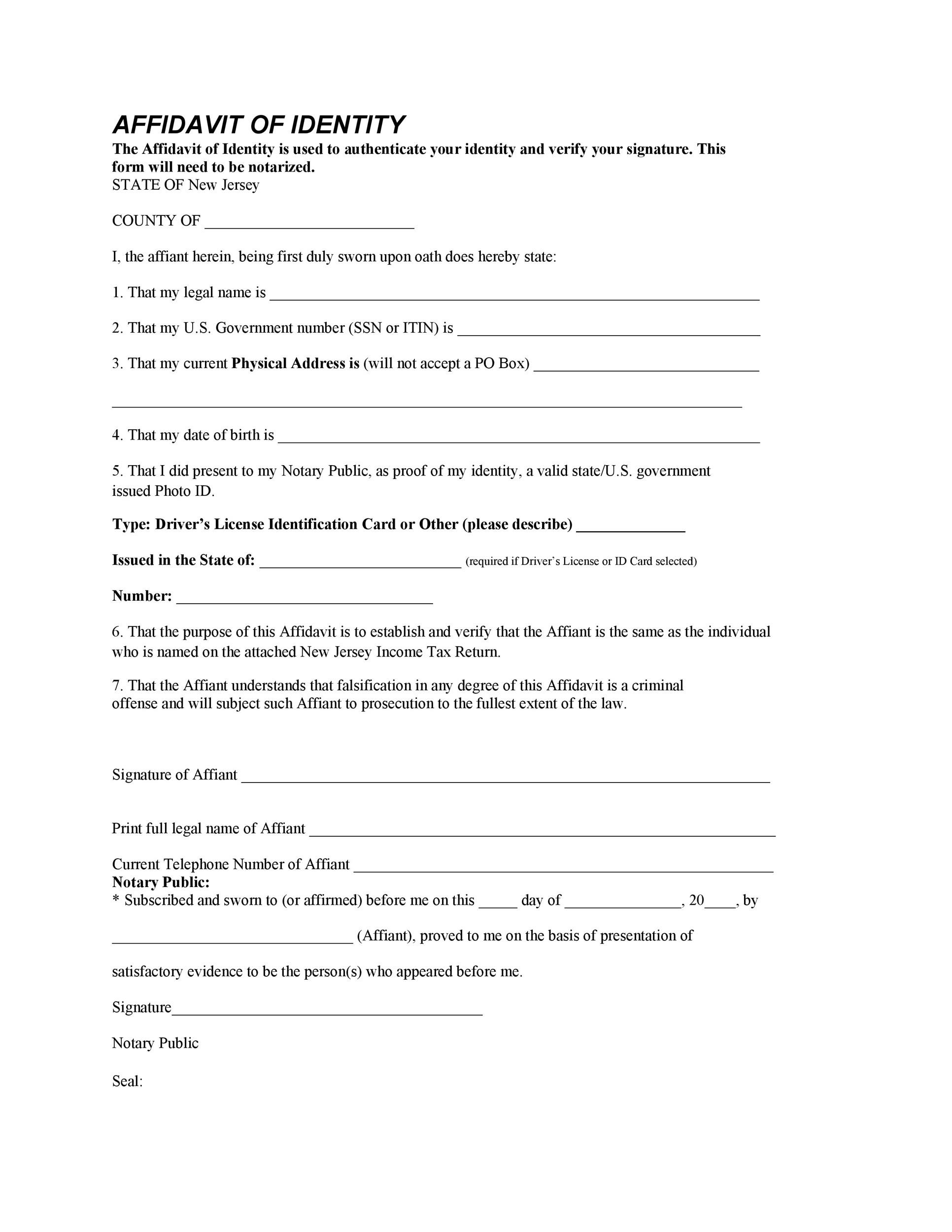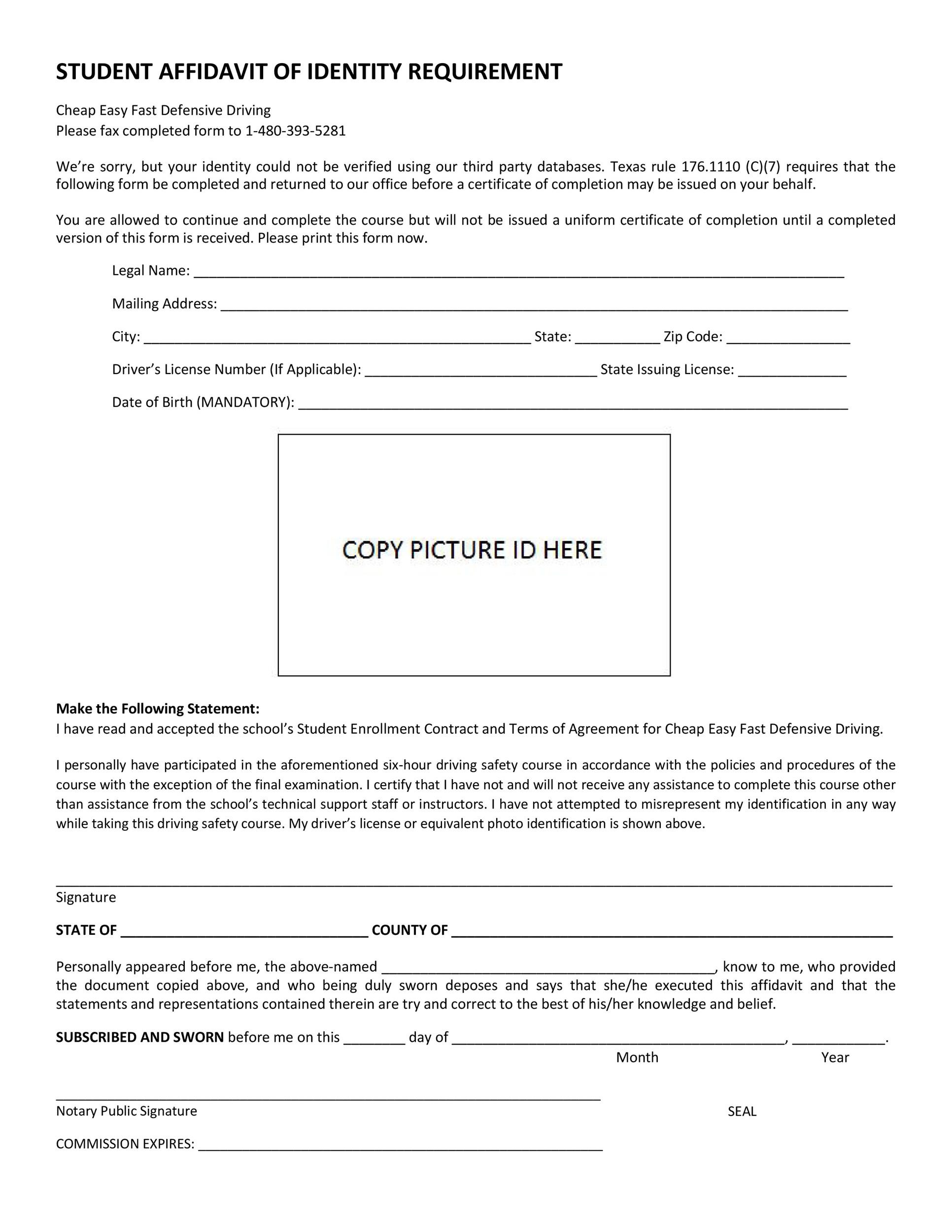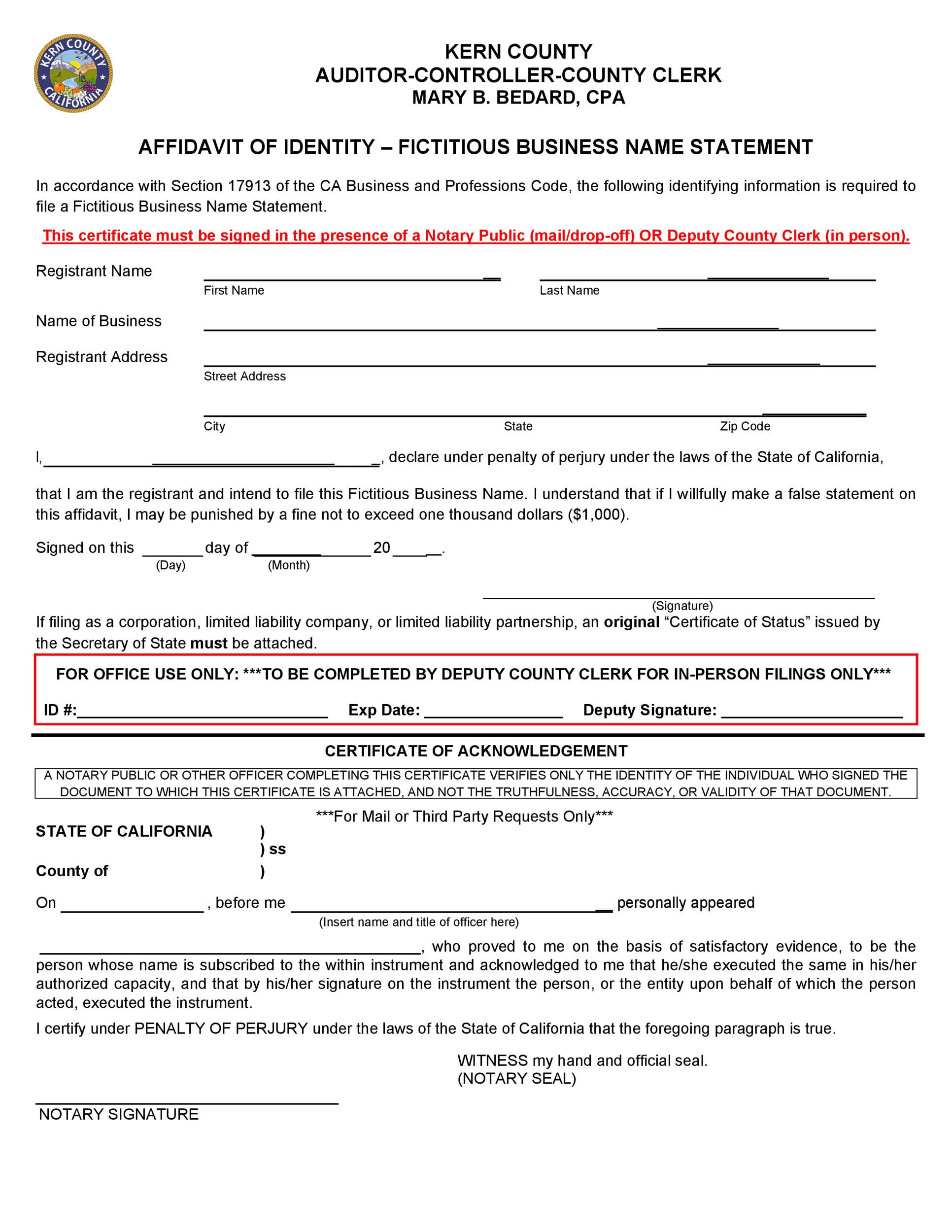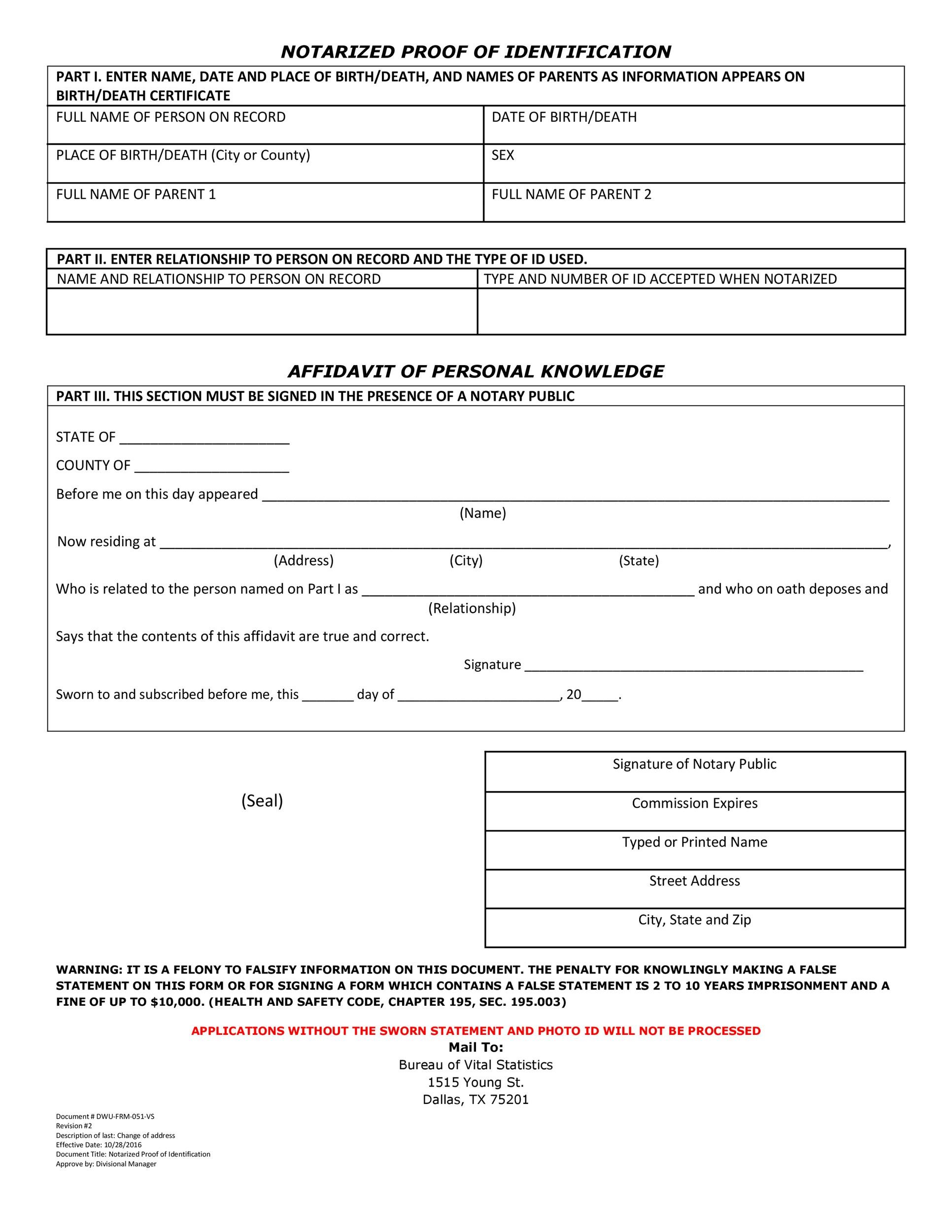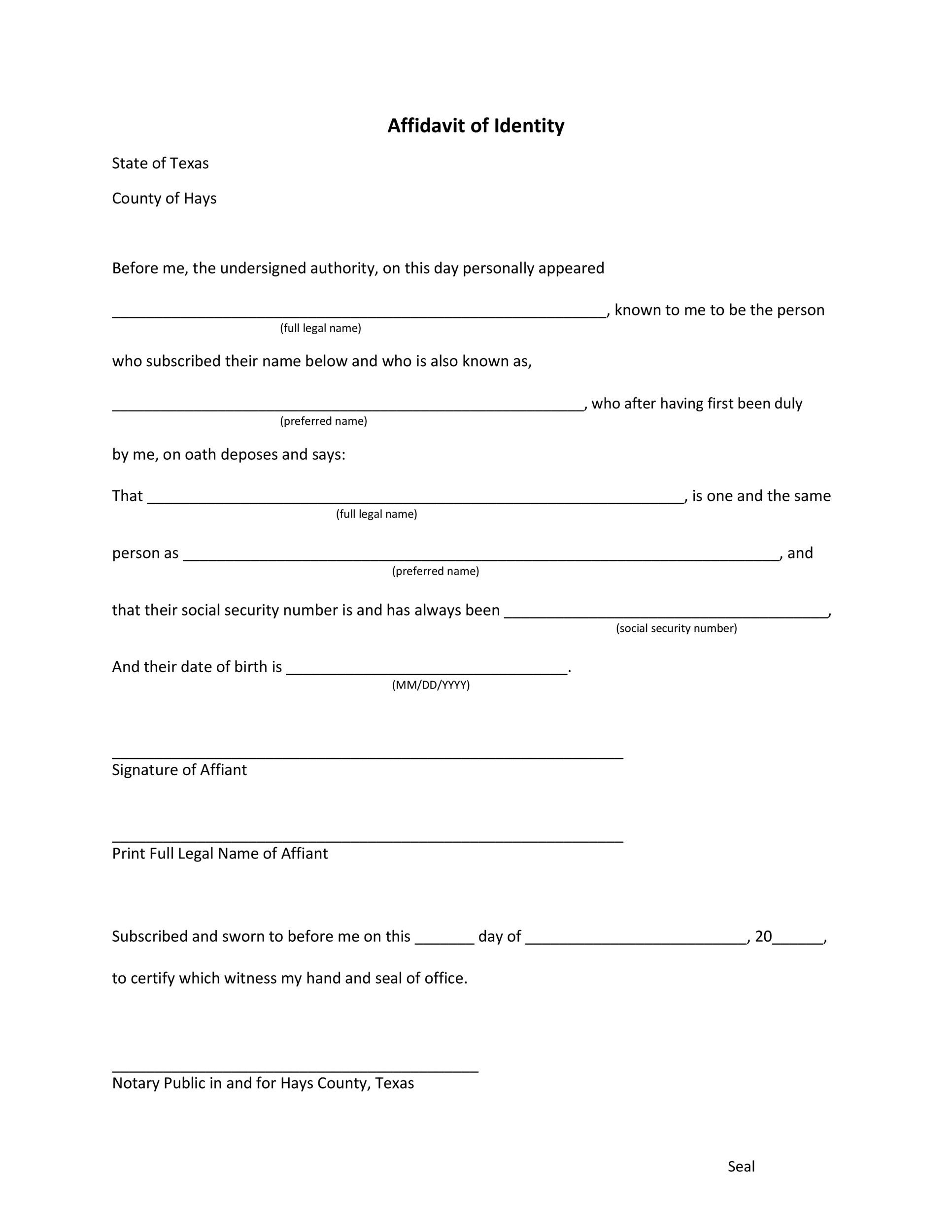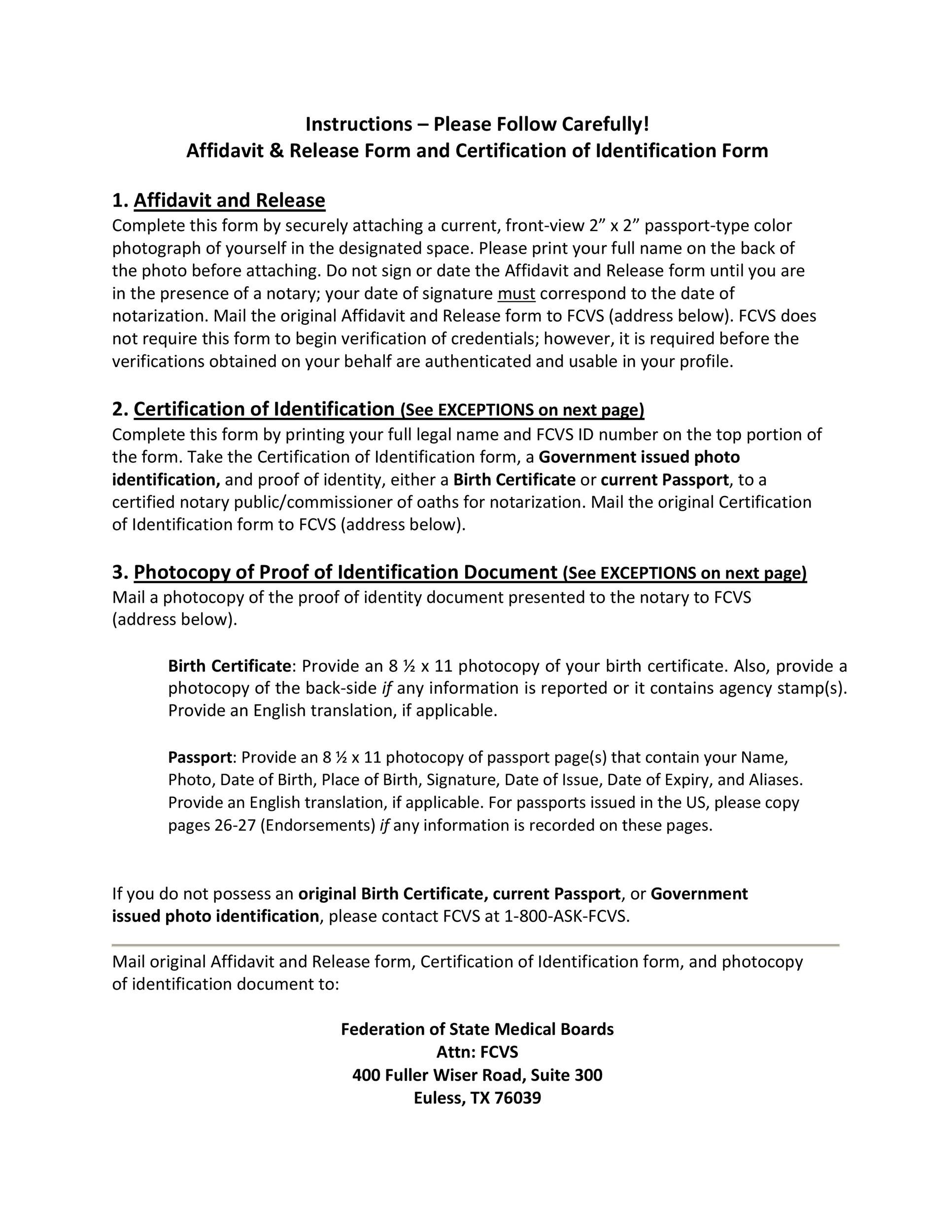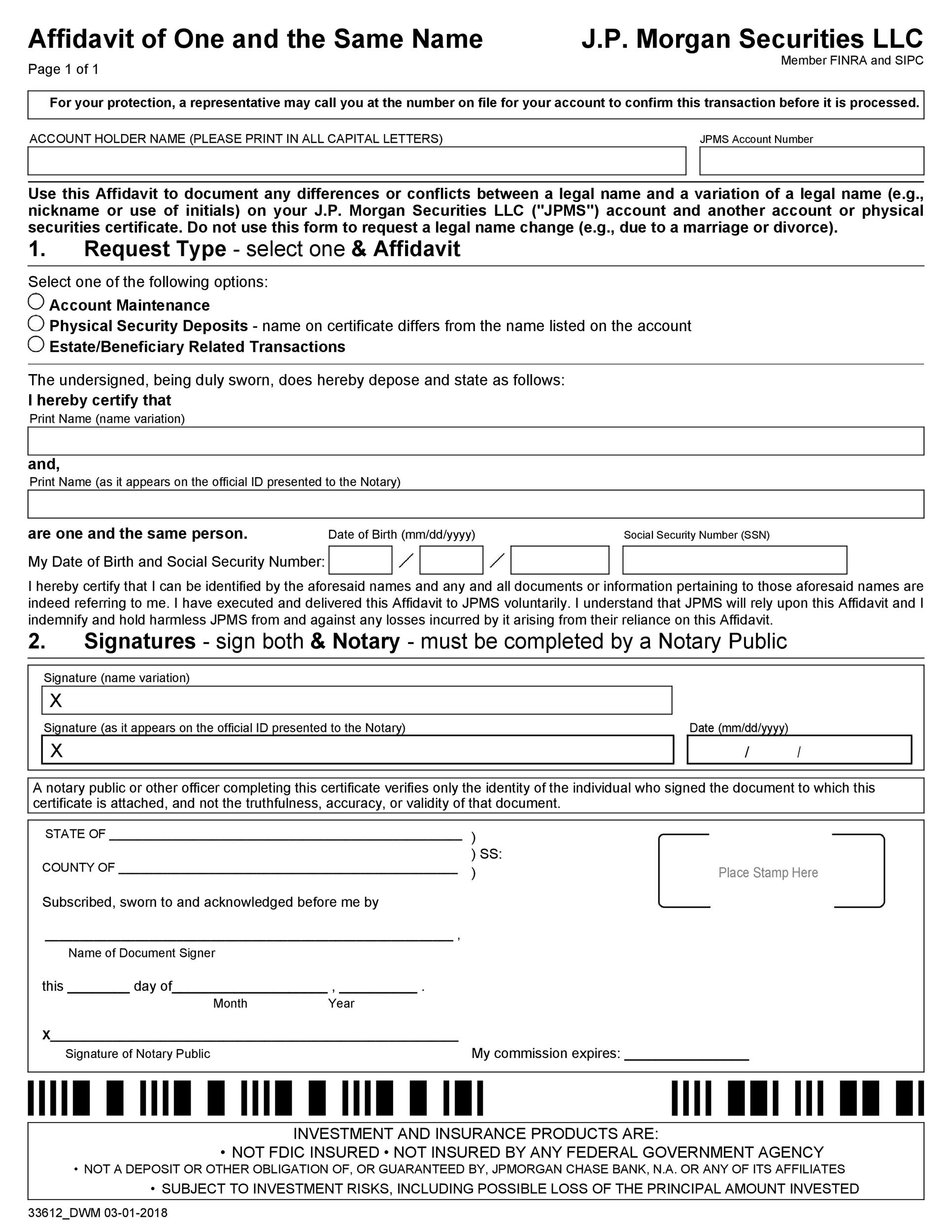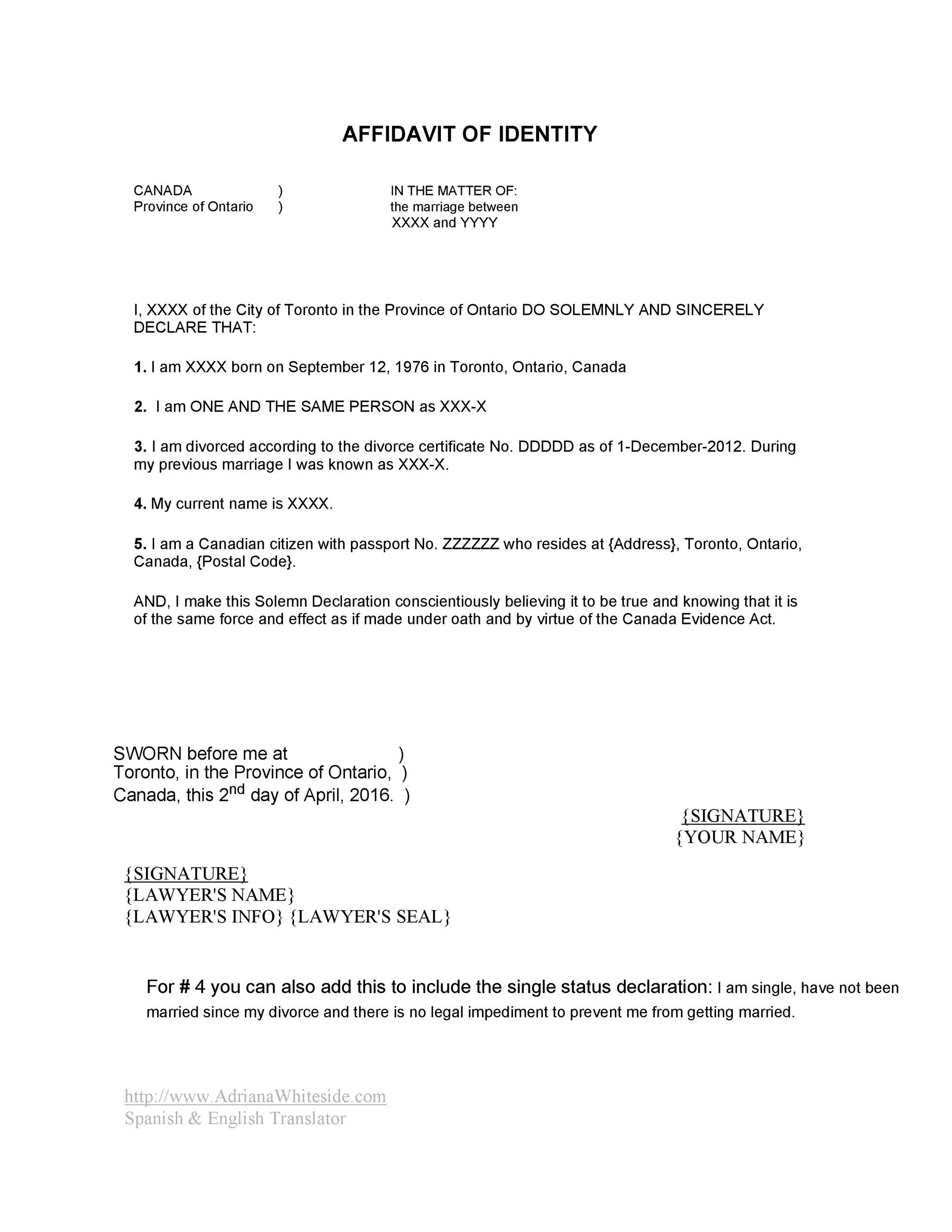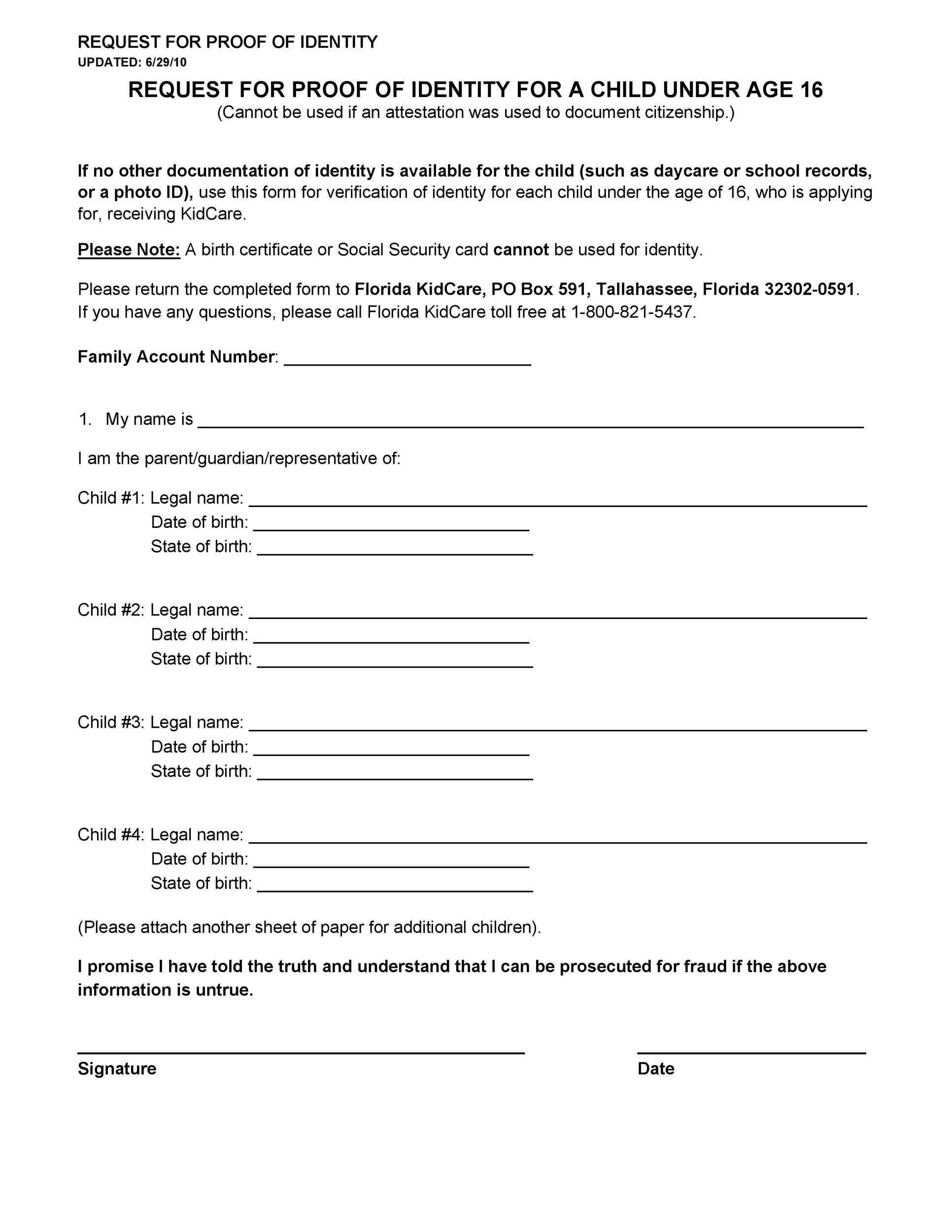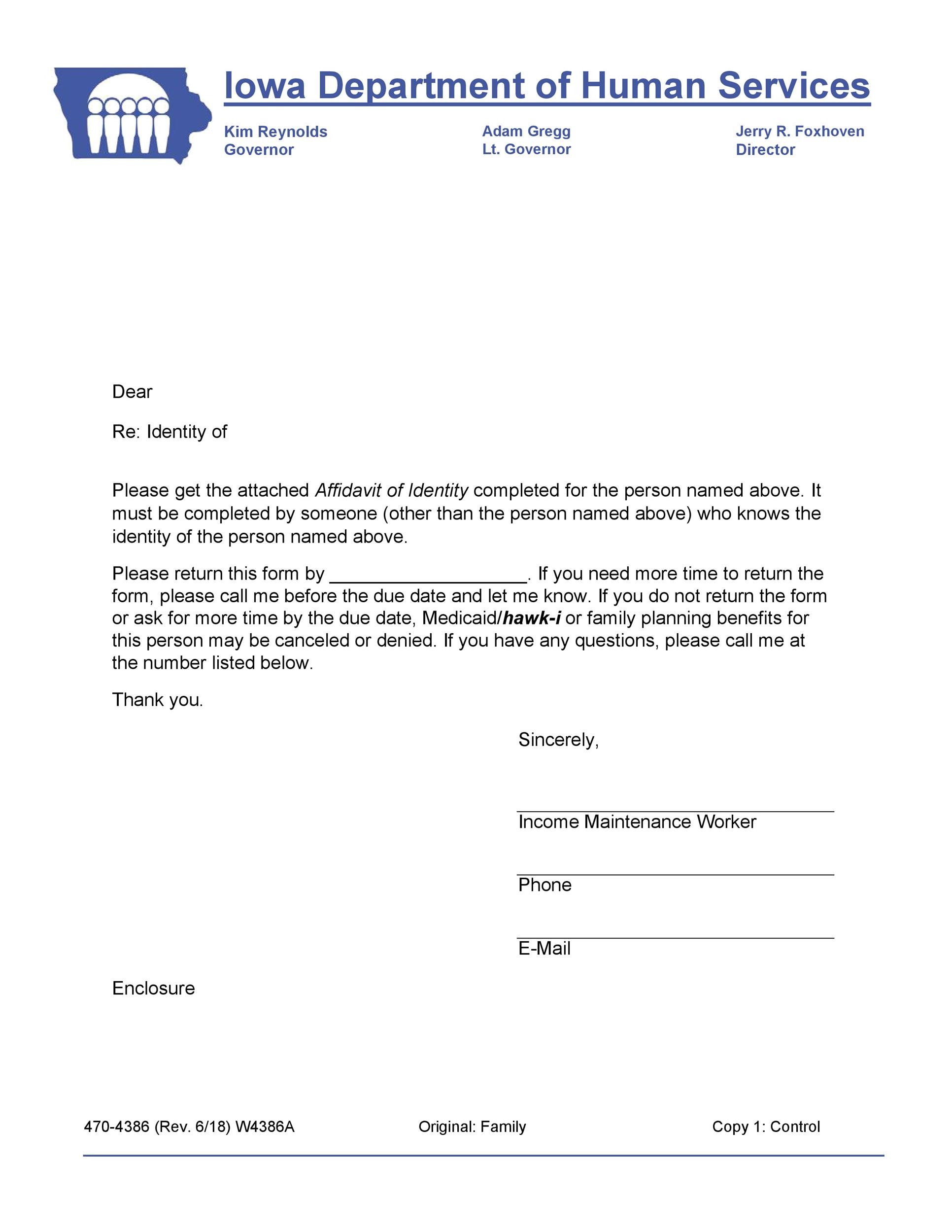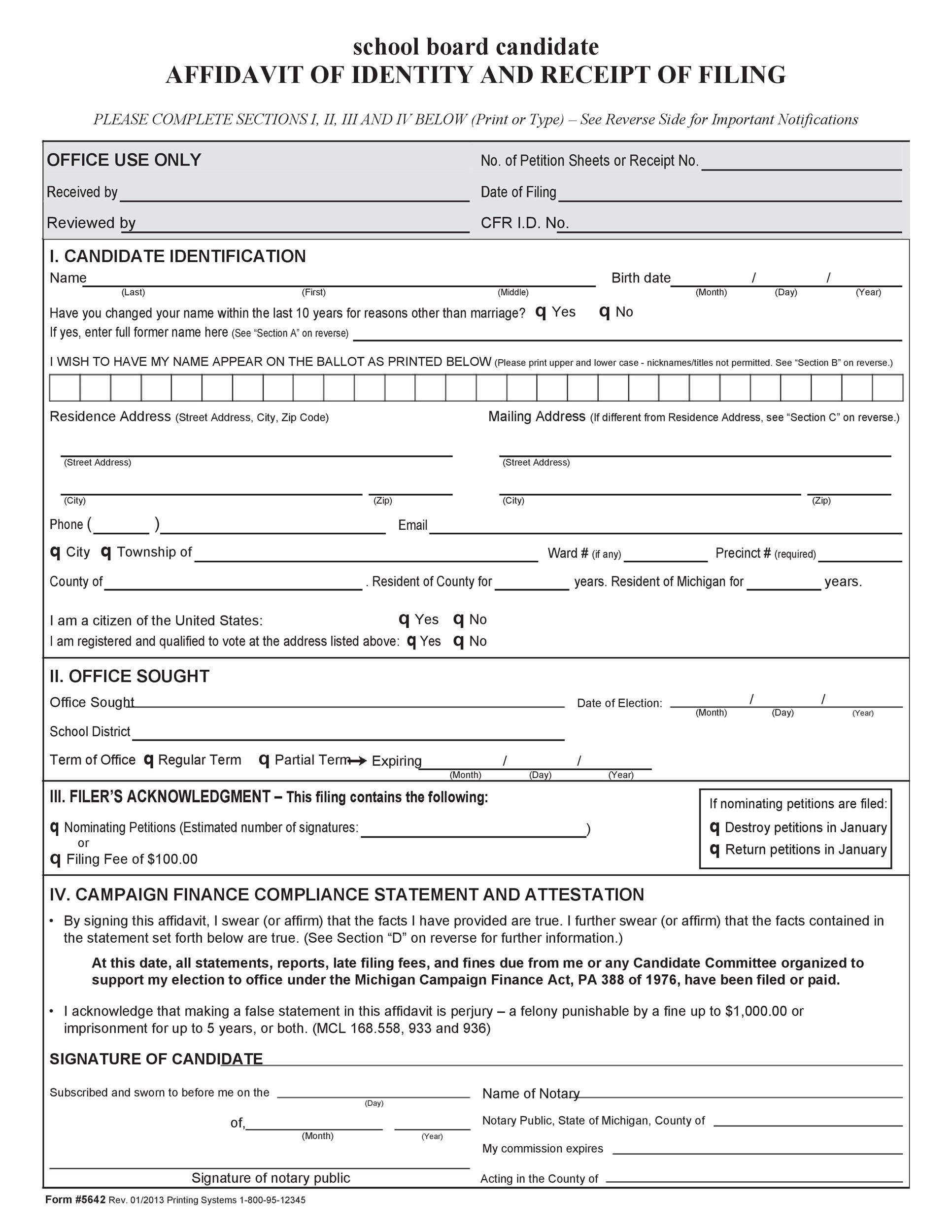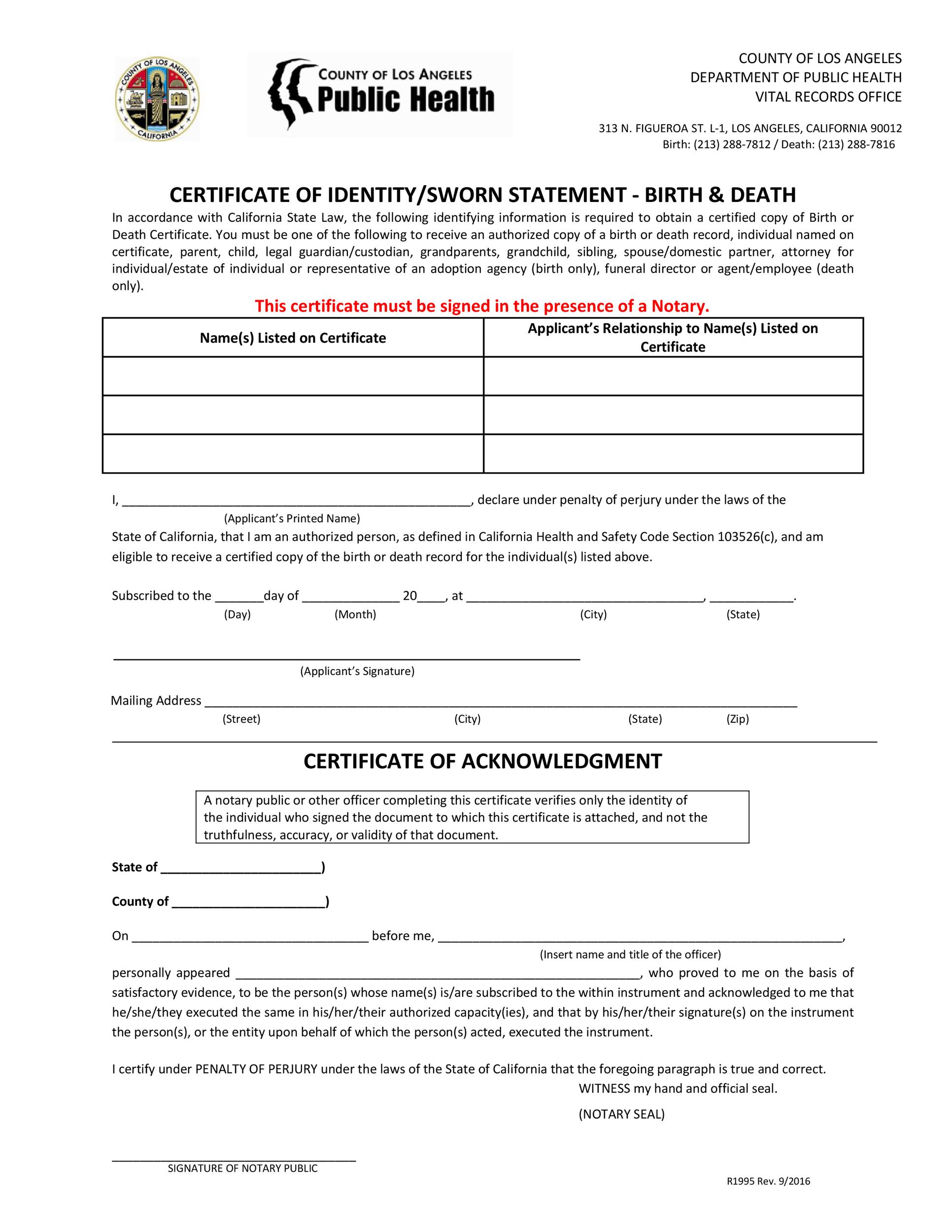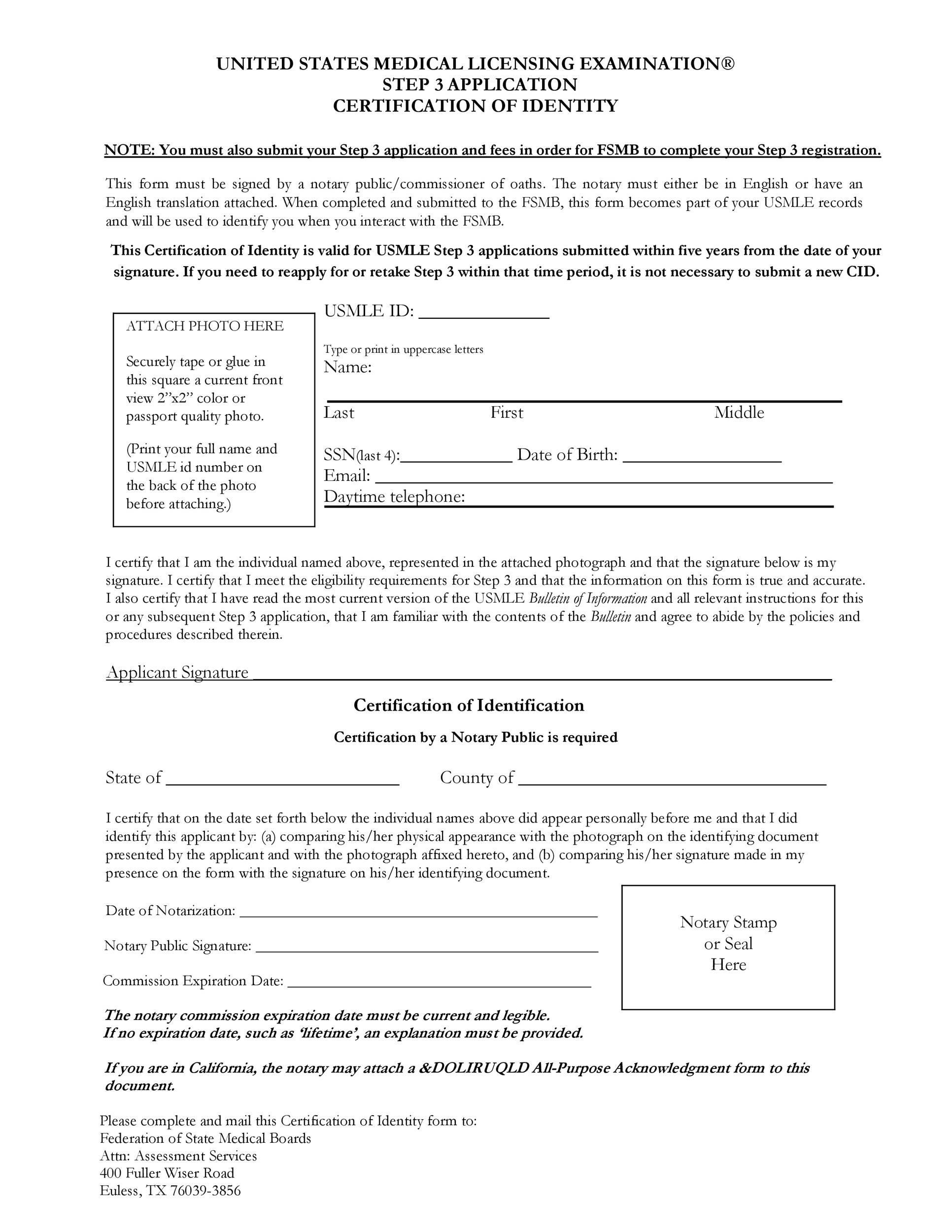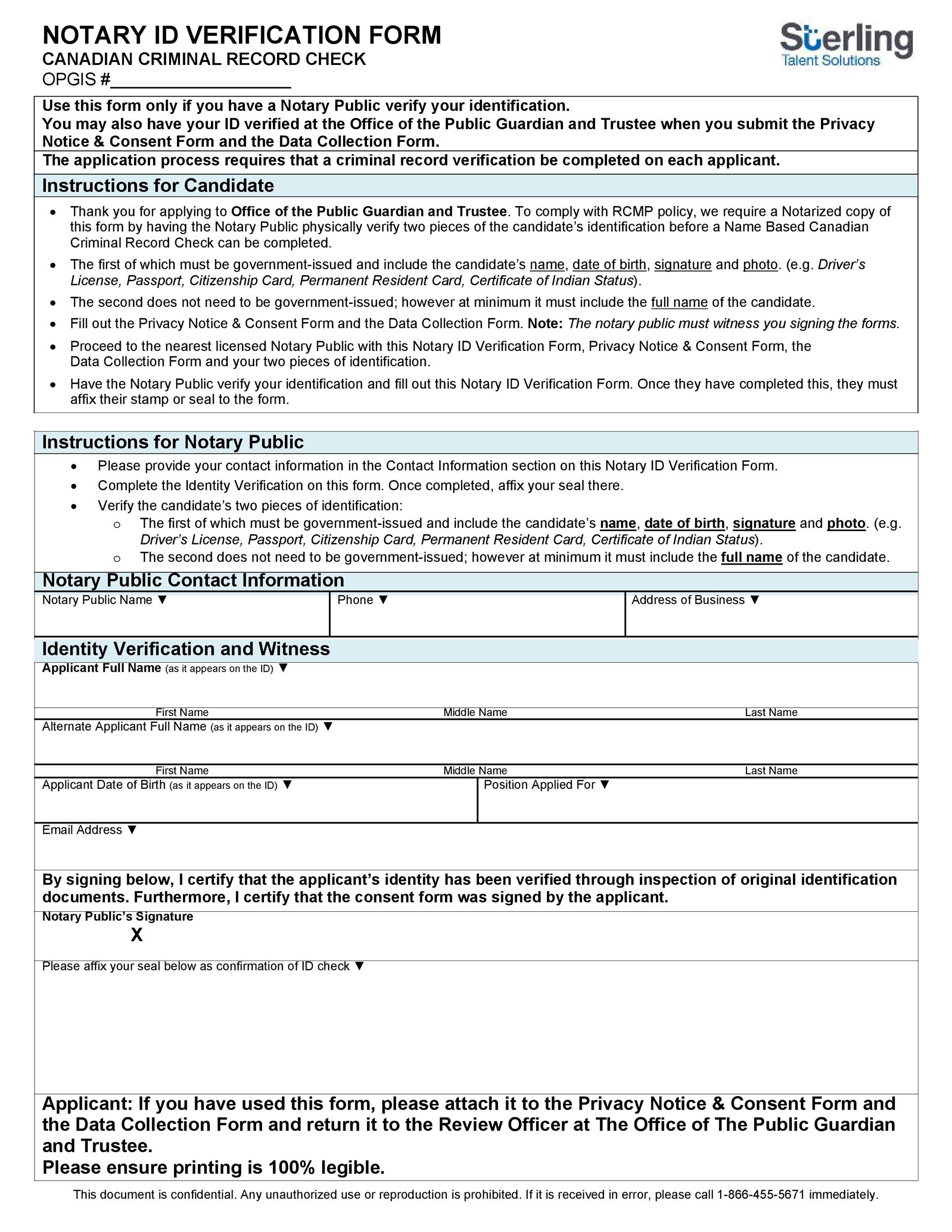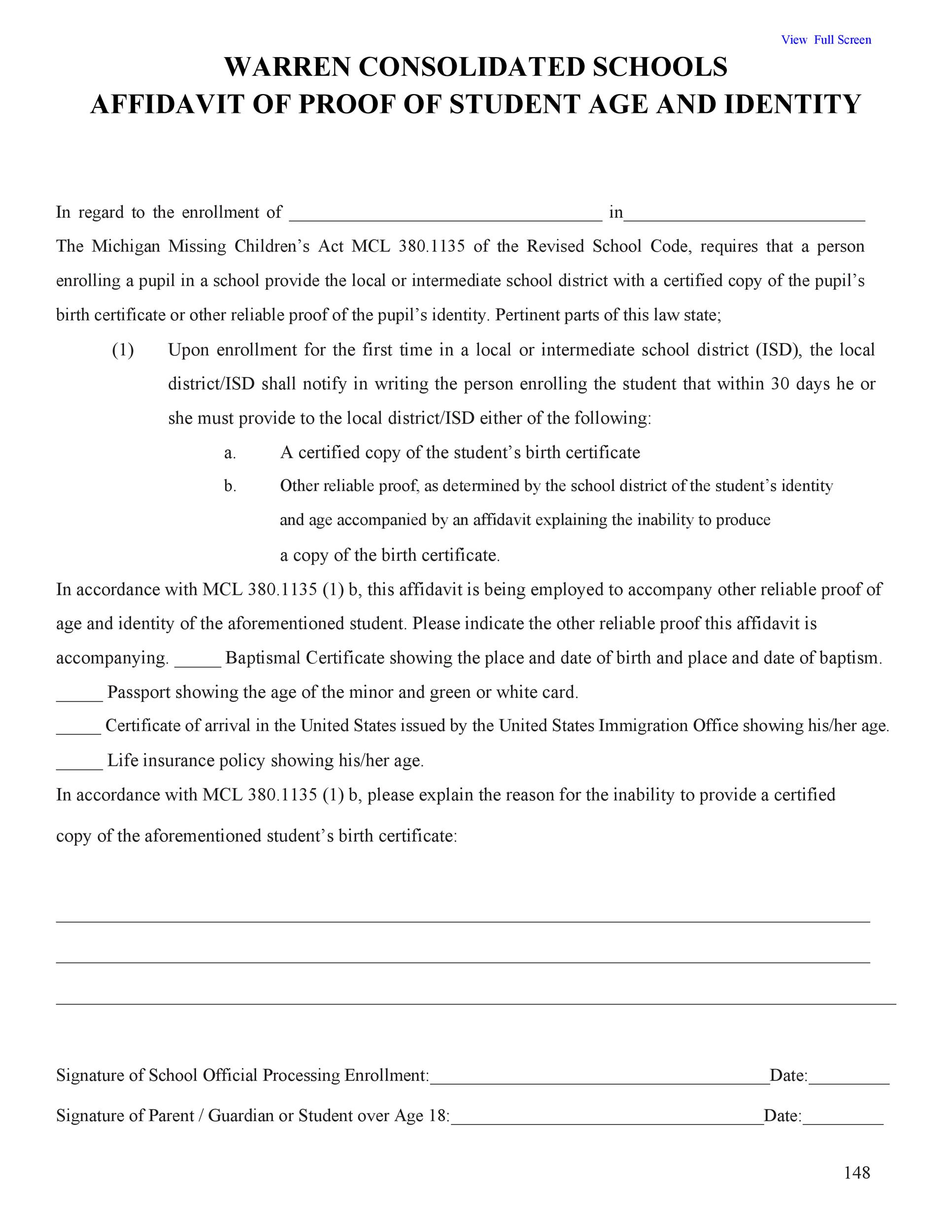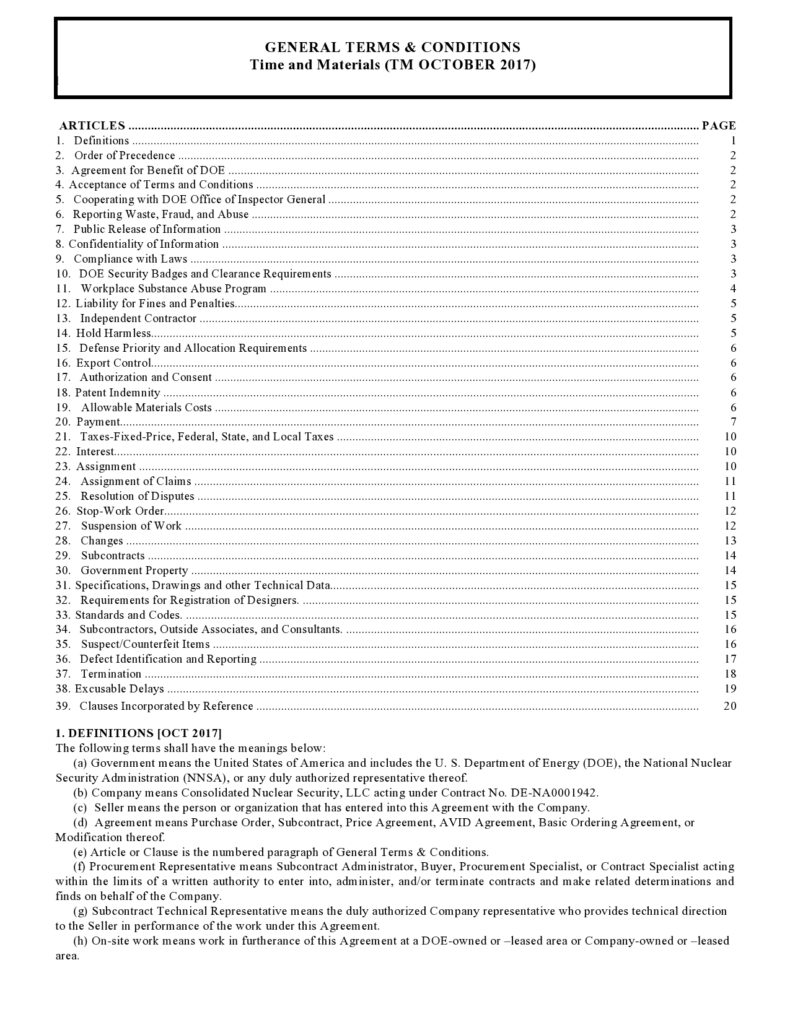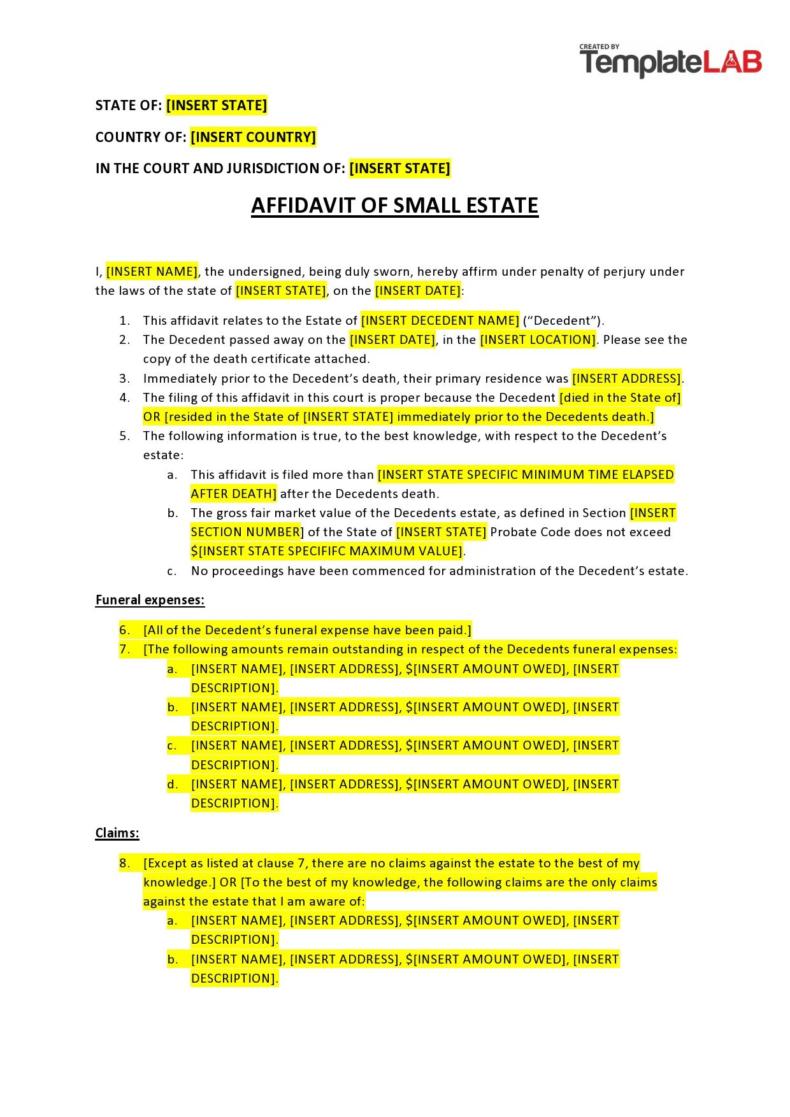An affidavit of identity is a type of legal document that’s made for verification purposes. The person who needs to sign this document receives the title of “affiant.” Also, the affiant’s identity is the one verified by the document. You can also use an affidavit of identity form to verify the affiant’s legal signature. This is because the document is often signed, witnessed, and sealed by a notary public. The notarized affidavit of identity contains identifiable and personal information about the affiant including his birth date, home address, and Social Security Number.
Table of Contents
- 1 Affidavit of Identity Templates
- 2 What is an affidavit of identity for?
- 3 Affidavit Of Identity Forms
- 4 When do you need an affidavit of identity?
- 5 Affidavits For Proof of Identity
- 6 Things to include in your affidavit of identity
- 7 What happens when you don’t have an affidavit of identity?
- 8 Notarized Affidavits Of Identity
- 9 How do you get an affidavit?
- 10 What is a notarized certificate of identity?
- 11 What is a letter of identification?
Affidavit of Identity Templates
What is an affidavit of identity for?
The affidavit of identity is a legal document and falsifying such a form is considered perjury which is a criminal offense. This document is a sworn oath, and it’s signed by the affiant whose identity gets verified by the affidavit for proof of identity. It also contains a warning statement which says that the document’s recipient has the will and right to prosecute the affiant.
Often, the document also comes with a statement wherein the affiant swears that all of the information written is complete, correct, and true to his knowledge.
Companies and individuals depend on these documents for the prevention of fraud and for their own protection in case the affiant isn’t able to provide an ID with a photograph or any other kinds of documents which provide his identity. There are several purposes of an affidavit of identity form. These include:
- Governments may require this document from candidates who want to run for office as a part of their requirements of eligibility.
- Financial institutions such as banks may require this document from their customers before they can open brokerage or bank accounts.
- Small claims courts may require this document from litigants when they want to file a complaint or a deposition.
- To prove their relationship to minors, parents or legal guardians may need this document.
There are some cases too when private companies, courts, and government agencies may require the parents or legal guardians of a minor to submit this document to confirm the child or teenager’s identity. Minors don’t have the same identifying documents as adults like a driver’s license or a passport.
Therefore, the minor’s parents or legal guardians must create an affidavit for proof of identity along with other documents such as school records or the birth certificate of the minor. Even though the adult created the document for the minor, if he falsifies any of the information, he is still guilty of perjury.
Affidavit Of Identity Forms
When do you need an affidavit of identity?
There are specific situations wherein you need a notarized affidavit of identity. Some examples of these situations include:
- Some types of court proceedings
- Some bank transactions
- When a sole proprietor does business using a business name (this only applies in many jurisdictions)
- When running for office (only in some states)
- When a business owners request for it from their clients or customers
- When you work with title companies
- When you need to draft papers for temporary guardianship
- When creating a power of attorney
In cases when you become a victim of identity theft, you need an affidavit of identity as well. In such a case, there are certain situations where you have to create this document including:
- When you need to file state income tax returns (only in some states)
- When you’re dealing with credit bureaus, creditors, and agencies of law enforcement.
As you can see, there are different circumstances where you need this document. As long as an institution or agency needs this document from you, they will inform you beforehand so you can prepare it.
Affidavits For Proof of Identity
Things to include in your affidavit of identity
There is no standard format for an affidavit of identity form. If you need one, you can download the template from here. You can use the template as it is or customize it according to your needs. Just make sure that the document you create includes the following information:
- The full name of the affiant
- The date of birth of the affiant
- The signature of the affiant
- Any form of identification you rely upon
- The signature of the person who seeks identification
- The signature of the notary public
- The seal of the notary public
If the purpose of the affidavit is to support an allegation of fraud, you can also request for the affiant’s Social Security Number or at least the last 4 digits of the Social Security Number.
What happens when you don’t have an affidavit of identity?
The affidavit for proof of identity has two primary purposes which are to verify the person’s identity and to verify his signature. Without this document, the entity asking for it might not believe your identity claims or the legitimacy of your signature.
Also, if you need the document for certain transactions, not producing it on time might result in your transactions getting denied or blocked. Here are some possible consequences of not having the affidavit:
- You can’t file a claim when you’re a victim of stolen identity. In such a case, government agencies, law enforcement agencies or creditors won’t believe your claim.
- You can’t prove that you are the true account holder in a given financial institution. Banks and other financial institutions may require a notarized affidavit of identity along with a government-issued ID for you to access your bank accounts in certain cases. This protects you and the bank from unauthorized access.
- You can’t file to run for electoral office in certain states. This document is a part of the requirements of eligibility for the security and safety of the state’s citizens.
- You can’t be a part of court proceedings.
- You can’t engage in some types of business transactions, especially those which have a financial nature.
Notarized Affidavits Of Identity
How do you get an affidavit?
An affidavit is a type of legal document which contains sworn statements and facts. Most of the time, evidence in lawsuits come from the information contained in the affidavit. This document is carefully composed and sworn under penalty of perjury. Therefore, the contents of the document carry the same weight as those given live by a witness.
You can draft the affidavit yourself then have the affiant affix his signature on the document in the presence of a notary public. To get an affidavit, write down all of the statements you want the affiant to swear using the proper format. Then have the affiant read all of the statements to check their accuracy. After that, you can ask him to sign before your chosen notary public.
What is a notarized certificate of identity?
A certificate of identity which is also known as an “alien’s passport,” is a type of travel document given to non-citizens residing within the borders of a country. These non-citizens or “aliens” aren’t able to get a passport from their own state of nationality making them stateless or refugees.
There are some cases when states issue these certificates to their citizens instead of a passport or in an emergency. The visa requirements needed for these certificates vary to those needed for standard passports. In the certificate of identity, the person should:
- Print his name and affix his signature on the copy.
- State his occupation group or profession.
- Include his contact information and, if applicable, his Membership Number.
- Write the date certified.
What is a letter of identification?
A letter of identification is a written document that’s used to prove the identity of a person. It may work the same way as other forms of identification such as passports, government-issued IDs, and more. There are some countries which issue a formal letter of identification which is either non-compulsory or compulsory.
In other countries, they may not consider this letter unless accompanied by other identity verification documents. If the identity document includes a photograph of the person who owns it, you may call this a photo ID. The main purpose of a letter of identification is to serve as proof of the person’s identity.
In the absence of an official identity document, a lot of countries may accept your driver’s license for the purpose of identity verification. However, some countries don’t accept this form of identification either because they’re easy to forge or they don’t expire as documents. The more common form of identification that’s accepted is passports. Most countries accept these as proof of identity.
There are some countries where you always need to carry some sort of identity document with you whether you have a letter of identification, a passport or any other official identification document. This is especially true if you’re a foreigner in the country. You may need the identity document if you run into trouble or get into an accident.
Just like passports and photo IDs, a letter of identification connects all of the information on it to you. For instance, photograph on the ID serves as evidence that you are, indeed, the owner of the ID card. Also, the signature on the official document serves as official proof of your own signature. All these documents which prove your identity are extremely important, so you need to take care of them.

